 07/05/2009 18:49 07/05/2009 18:49 |
|
| | | OFFLINE | | Post: 17.334
Post: 53 | Registrato il: 28/08/2005
Registrato il: 20/01/2009 | Administratore | Utente Junior | |
|


Please add a special prayer for the Holy Father's pilgrimage to the Holy Land
and for the countries and peoples of the Middle East.

Stories posted earlier today on tne preceding page include updates about the Pope's trip to the Holy Land.

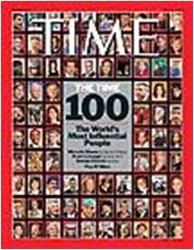
I REALLY SHOULDN'T CARE,
BUT STILL...
For what it's worth, TIME magazine, for the second year in a row, did not consider Pope Benedict XVI worthy enough to be named among their '100 Most Influential People in the World' for 2009.
They define this as "an annual list of the world's most influential people - the leaders, thinkers, artists, titans and icons who shape our thinking and most affect our world".
How can it not automatically include the leader of 1.2 billion Catholics, the de facto leader of more than 2 billion Christians. and the universally recognized supreme moral authority on the world scene???? And that's just considering Benedict XVI in his persona as Pope. If you added in his own personal qualities, no one else could be so formidable an influence!
TIME has five categories: Leaders & Revolutionaries, Builders & Titans, Artists & Entertainers, Heroes & Icons, Scientists & Thinkers. And yet, someone as eminently qualified as Benedict XVI to make it in all those categories except Artists and Entertainers - a claim none of the other persons found worthy to make the list can make - is left out egregiously. As egregious as when in 2007, Time omitted both the President of the United States - who happened to be George W. Bush, and the Pope - from its list.
No matter what the list-compilers personally think, there are two unique positions one cannot simply ignore in making up these lists - which are really more of a promotional job for the list compilers than a genuine 'honor' - and these are Pope and President of the United States.
The one religious figure in the 2009 list is evangelical pastor Rick Warren. Though I am shocked (!) that the liberals at Time also ignored one of the all-time liberal icons, the Dalai Lama, who made the list last year, along with Bartholomew I - though, I repeat, not Benedict XVI. As venerable as both the Dalai Lama and Bartholomew I are, can anyone really say that at at any one particular point in time, they are or have been more influential than the Pope?
And can TIME explain what makes an established icon influential this year and not the next year (unless he is no longer in power, as most political leaders can get to become, or unless he dies)?
The strange thing is that in 2005, before more than a handful of people around the world had even thought about Cardinal Ratzinger as a potential Pope, Time included him on its first Top 100 Most influential people!
If he was influential as Cardinal Ratzinger, how can he be less influential as Pope Benedict VXI? Or perhaps they only included him in 2005 as a 'Look how clever we are!' stunt, almost a perverse jeer at their liberal fellow travellers to whom the very name Ratzinger was - and continues to be - anathema.
So now, people like those silly chattering women on ABC's The View can boast that they are more influential than the Pope!
[Modificato da TERESA BENEDETTA 19/05/2009 18:18] |
| |
|
| |
 07/05/2009 19:18 07/05/2009 19:18 |
|
| | | OFFLINE | | Post: 17.335
Post: 54 | Registrato il: 28/08/2005
Registrato il: 20/01/2009 | Administratore | Utente Junior | |
|
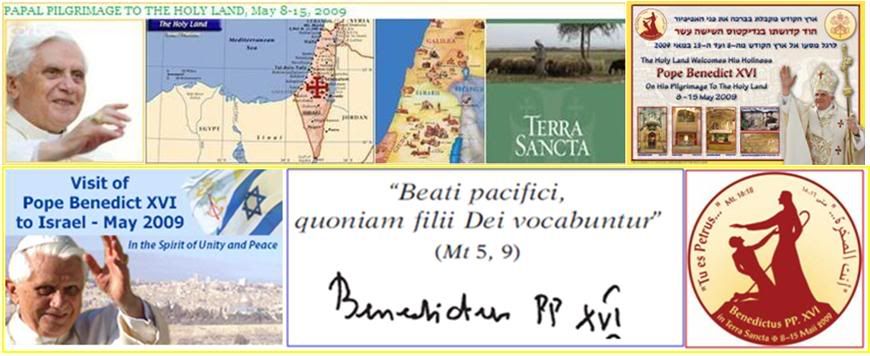 How welcome it is that David Goldman - aka Spengler - is now with FIRST THINGS, where one can rely on having a knowledgeable (since he is Jewish) but not ideologically biased observer of Jewish-Chrsitian relations! This is yet another example of how he usually thinks outside the box.
Benedict XVI and the State of Israel
How welcome it is that David Goldman - aka Spengler - is now with FIRST THINGS, where one can rely on having a knowledgeable (since he is Jewish) but not ideologically biased observer of Jewish-Chrsitian relations! This is yet another example of how he usually thinks outside the box.
Benedict XVI and the State of Israel
By David P. Goldman

May 14 is Israel’s Independence Day (celebrated according to the Jewish rather than the Gregorian calendar), recalling the declaration of the State of Israel in 1948. For Palestinian Arabs the following day, May 15, is a day of mourning, “Disaster (Naqba) Day.”
It has gone unmentioned that Pope Benedict’s Holy Land pilgrimage falls on just these days. On May 15, the final day of his visit, the pope will share a podium in Israel’s capital Jerusalem with Israeli President Shimon Peres.
The Pope’s appearance in Jerusalem with Israel’s head of state on Naqba Day underscores his commitment to the State of Israel. From the founding of the State of Israel to 1993, when the Vatican at length established diplomatic relations with the Jewish State, the Holy See has had to balance its commitment to Middle Eastern Christians with its efforts to improve relations with the Jewish people.
Christians endured in the birthplace of their religion under Muslim rule as a dhimmi, or subject people, anxious to avoid giving offense to the far more powerful majority.
With the advent of the State of Israel and the hostile Muslim response, dhimmitude became less viable. It is estimated that thirty-five percent of the Christians in the West Bank and Gaza have emigrated since the 1967 war, mostly in response to harassment by radical Islamists.
Although Arab Christians have suffered at the hands of Muslim militants who oppose the existence of the Jewish State, many of them blame the Jews for rousing the Muslim militants in the first place.
Well before the establishment of diplomatic relations with Israel in 1993, then Cardinal Ratzinger repeatedly explained to Jewish representatives that the delay in diplomatic recognition solely reflected the concern of the Holy See for the vulnerable Arab Christian communities. His pilgrimage this May devotes considerable time to pastoral meetings with the Arab Christian community.
Nonetheless, Benedict has made clear that his concern for Arab Christians is embedded within an unwavering commitment to the Jewish community in the Holy Land.
It is hard not to see an evolution in Vatican policy towards Israel, from a pragmatic approach to the problems of religious constituencies, to explicit theological sympathy for the Jewish State.
Benedict XVI is first of all a theologian, and he views the Jewish presence in the Holy Land as a theological matter.
In 2008, on the fiftieth anniversary of Israel’s independence, Benedict XVI told Israel’s ambassador to the Holy See, “The Holy See is united with you and thanks God for the full realization of the Jewish people’s aspirations to live in its homeland, the land of its forefathers.”
Meeting with the Israeli rabbinate on March 12, the Pope affirmed the election of the Jewish people “to communicate to the whole human family knowledge of and fidelity to the one, true and unique God.” Theologically it is difficult to separate the election of the people from the promise of the land, and Benedict’s commitment to Israel seems strongly grounded in theology.
The Magisterium of the Church does not take an explicit position on the question of Jewish statehood.
Officially, the Catholic Church instructs, “The existence of the State of Israel and its political options should be envisaged not in a perspective which is in itself religious, but in their reference to the common principles of international law,” in the formula given in “Notes on the Correct Way to Present the Jews and Judaism in Preaching and Catechesis in the Roman Catholic Church” (1985).
But the Church also knows that Israel is more than just another small country like Finland or Ecuador, for the very next sentence of the 1985 document cites John Paul II’s recognition of the theological significance of Jewish survival: “The permanence of Israel (while so many ancient peoples have disappeared without trace) is a historic fact and a sign to be interpreted within God’s design. . . . It remains a chosen people, ‘the pure olive on which were grafted the branches of the wild olive which are the gentiles.’”
Middle Eastern Christians remain an important constituency opposing Vatican support for the Jewish State. Their position is difficult.
On March 25, the Holy See expressed “profound concern” about Middle Eastern Christians in the Middle East in the wake of the Israeli incursion into Gaza.
Cardinal Leonardo Sandri and Archbishop Antonio Maria emphasized the pastoral function of the Pope’s visit, nothing that he “constantly comforts Christians, and all the inhabitants of the Holy Land, with special words and gestures, coupled with his desire to make a pilgrimage in the historical footsteps of Jesus . . . The wounds opened by violence make the problem of emigration more acute, inexorably depriving the Christian minority of its best resources for the future . . . The land that was the cradle of Christianity risks ending up without Christians.”
That is not quite true, for although Arab Christians are indeed leaving areas controlled by Muslims, Christians are immigrating to Israel itself, whose Christian community has doubled in size in the past fifteen years.
Nearly 300,000 Eastern European immigrants are Christians, as well as many Filipinos and others who came as guest workers and have settled in Israel. Hebrew-speaking Israeli Christians are becoming a more numerous constituency than Arab-speaking Palestinian Christians.
The retirement in 2008 of Latin Patriarch Michel Sabbah, a vocal critic of the Jewish State, was symbolic of the generational change that shifted the balance of Christian life to Hebrew-speaking Israelis. Patriarch Sabbah belonged to an older generation that blamed Israel for the disruption of Christian life in the Holy Land.
The most important issues outstanding between the State of Israel and the Holy See involve the practical life of Church institutions ministering to Catholic citizens of the Jewish State, including taxation, the status of Church property, and so forth.
It is possible to look forward to a happy day in which the most important source of antagonism between Catholics and Jews will be tax treatment of Church property—provided, of course, that the Holy Father’s theological sympathy for the existence of the Israeli state prevails in the Church.
His predecessor John Paul II transformed Catholic–Jewish relations during his pilgrimage nine years ago, and the image of the Pope praying at the Western Wall did more to persuade Jews of Christian goodwill than all the conference resolutions in history.
Benedict’s presentation of the theology of election adds an inestimably important dimension to the story. But nothing strengthens the bond between the Church and the Jews as plainly as the Pope’s appearance in Israel on the anniversary of its independence. [And the fact that he, too, will pray at the Western Wall and leave a written prayer within its stones.]
[Modificato da TERESA BENEDETTA 07/05/2009 19:21] |
| |
 07/05/2009 20:17 07/05/2009 20:17 |
|
| | | OFFLINE | | Post: 17.336
Post: 55 | Registrato il: 28/08/2005
Registrato il: 20/01/2009 | Administratore | Utente Junior | |
|

 WITH THE PRESIDENT
WITH THE PRESIDENT
OF EL SALVADOR

VATICAN CITY, 7 MAY 2009 (VIS) - The Holy See Press Office released the following communique at midday today:
This morning, Thursday 7 May, the Holy Father Benedict XVI received in audience Elias Antonio Saca Gonzalez, president of the Republic of El Salvador. The president subsequently went on to meet Cardinal Secretary of State Tarcisio Bertone S.D.B.
In the course of the cordial discussions, attention focused on various questions concerning internal issues and the current international situation noting, among other things, the country's commitment to promoting co-operation in the area of trade, to the struggle against organised crime, to the field of education and emigration, and to social promotion.
Finally, the good relations between Church and State were highlighted, and the hope expressed that they may grow stronger in order to favour spiritual progress, pacification and national development.
The President was accompanied by his wife, Ana Maixco Sol, and an official delegation.
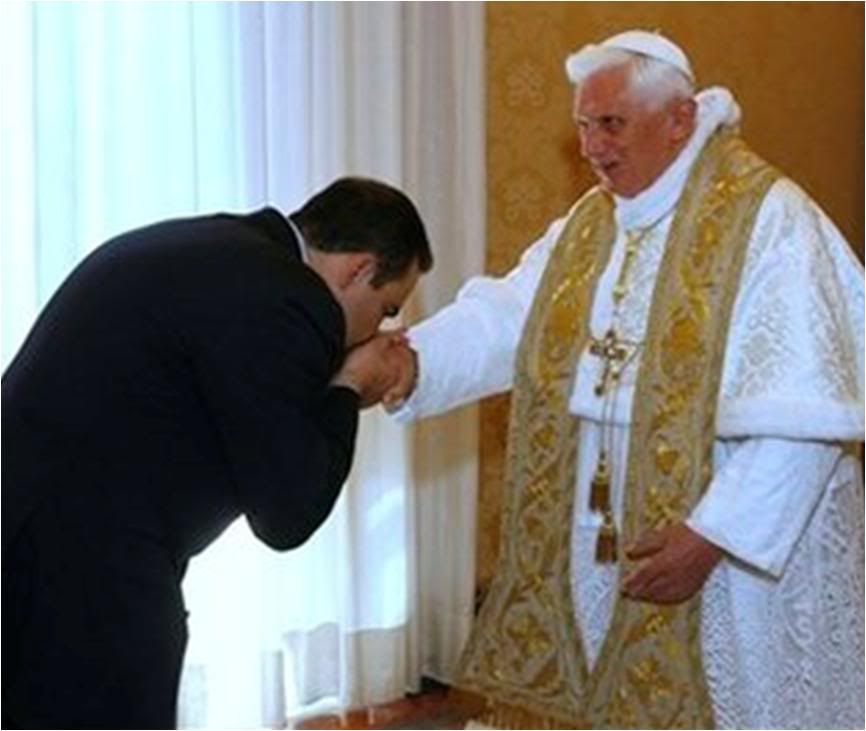
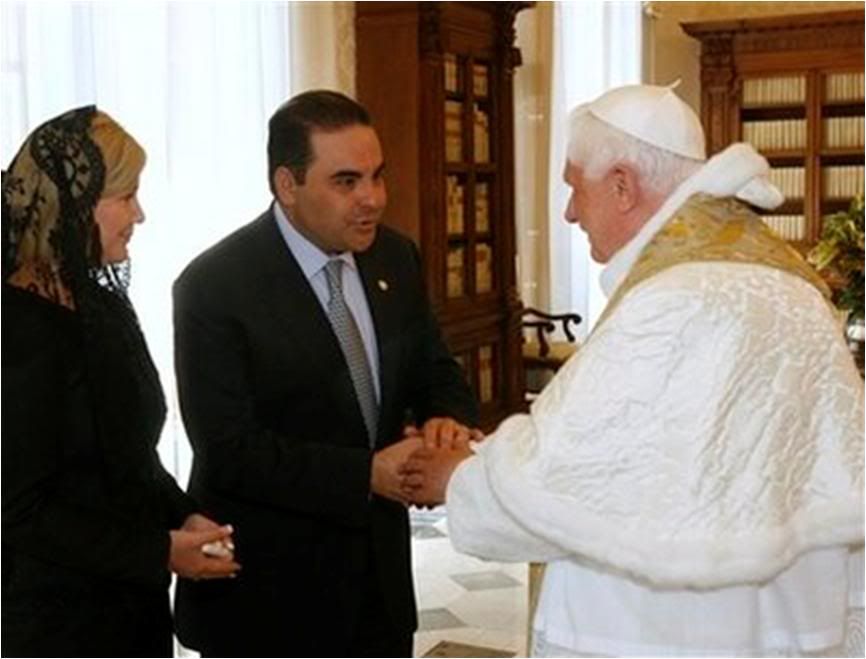
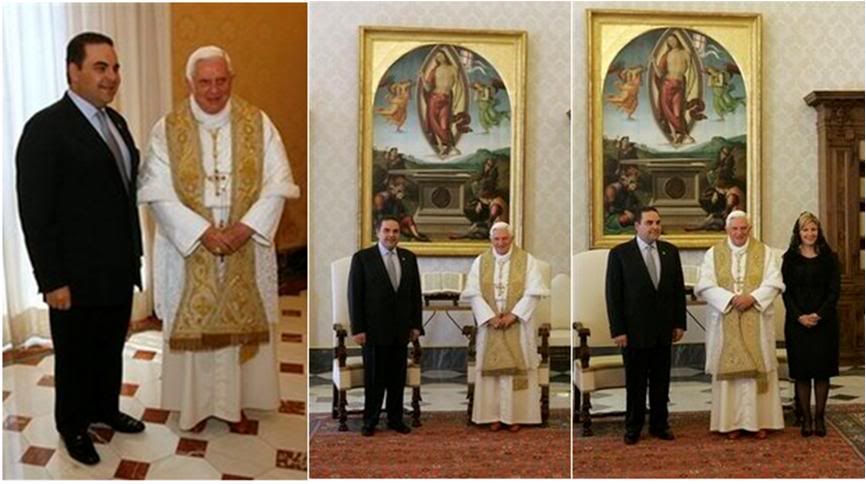
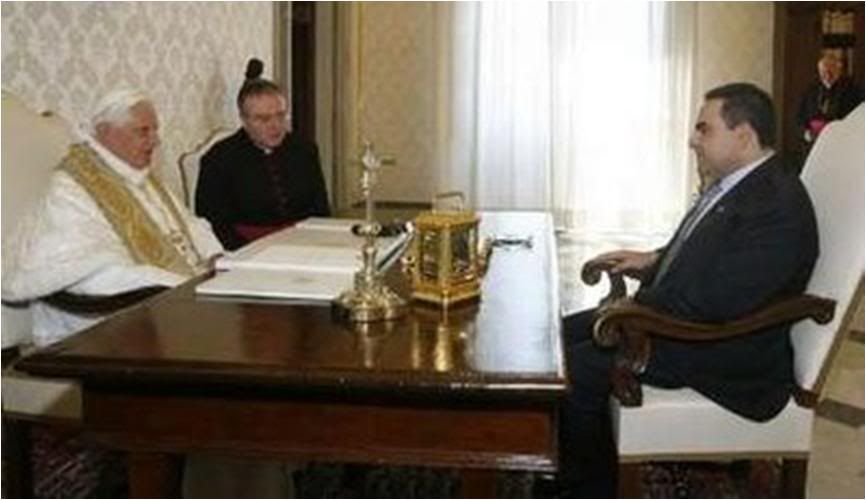
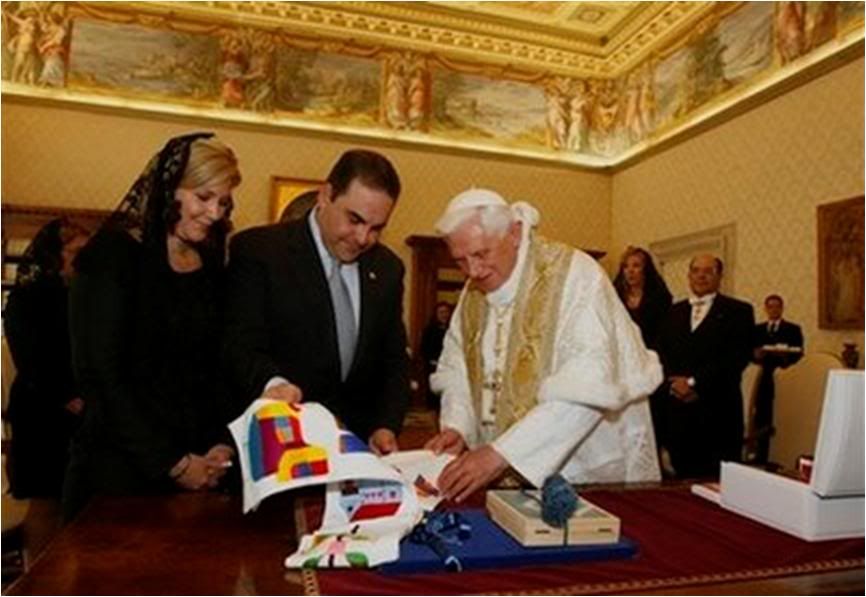
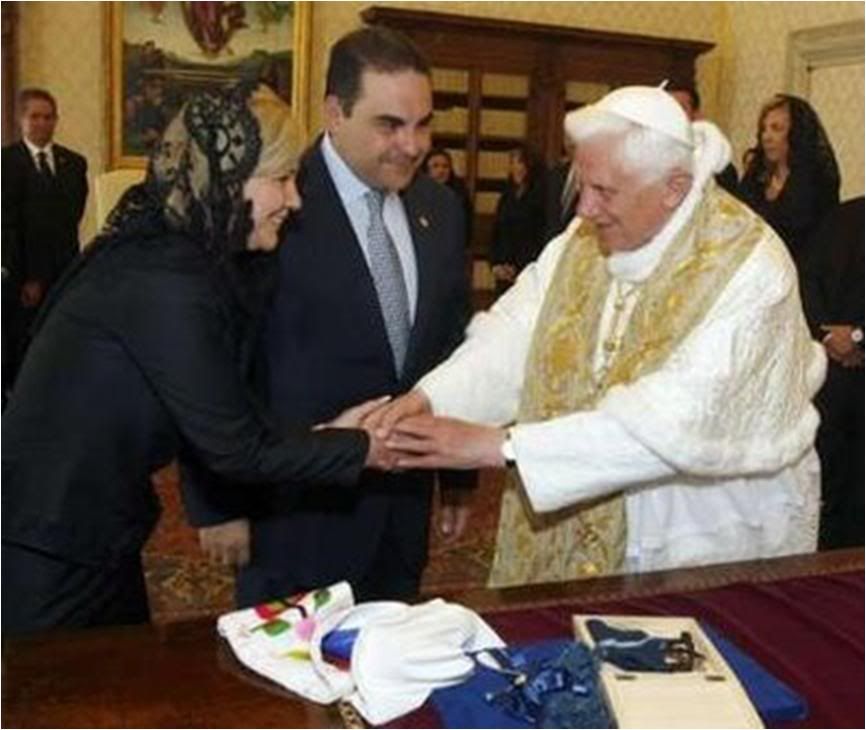
[Modificato da TERESA BENEDETTA 01/06/2009 03:56] |
| |
 07/05/2009 21:46 07/05/2009 21:46 |
|
| | | OFFLINE | | Post: 17.337
Post: 56 | Registrato il: 28/08/2005
Registrato il: 20/01/2009 | Administratore | Utente Junior | |
|
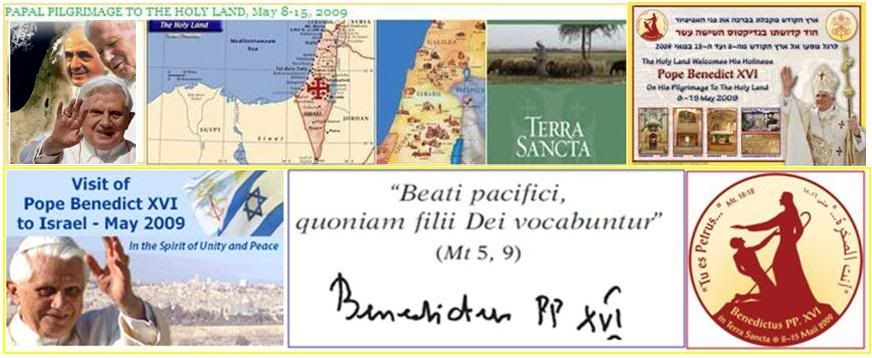 INTERACTIVE MAP OF
INTERACTIVE MAP OF
THE PAPAL PILGRIMAGE

The Italian service of Vatican Radio has an interactive map that will enable the viewer to see the geographical location and context of the places that the Holy FatHer will visit.
www.radiovaticana.org/it1/terra_santa/mappa_interattiva.asp
There is a map for each day of the trip, with numbers indicating where the events of the day will take place:
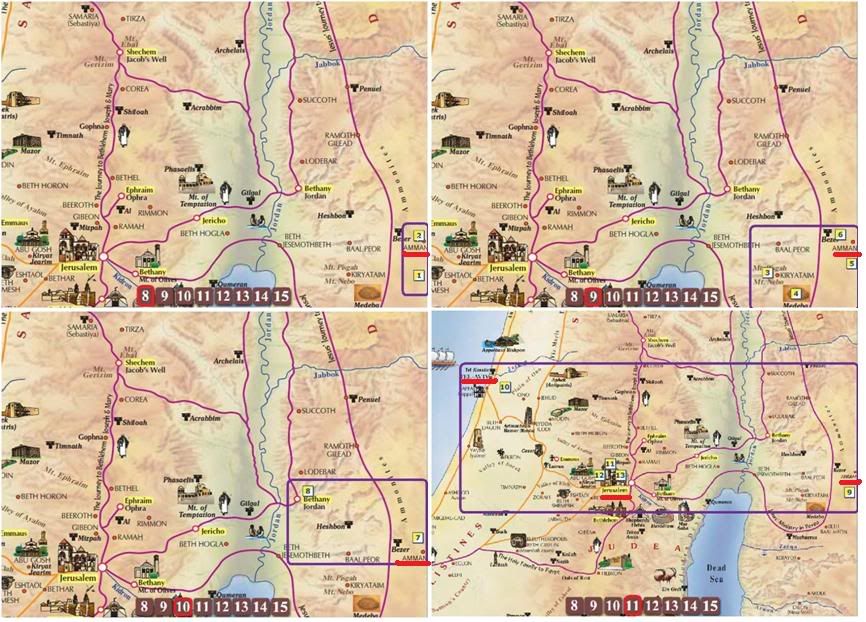
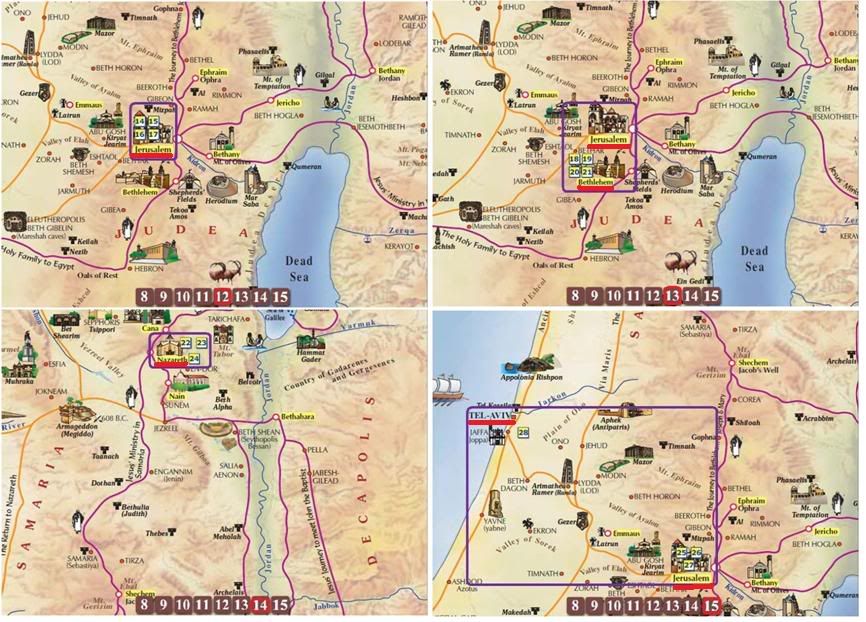

RV's Italian service has also produced two dossiers on the pilgrimage - one specifically on Benedict XVI's pilgrimage, and the other one entitled 'The Magisterium of the Popes' presents an overview of the pilgrimages of Paul VI and John Paul II, with excerpts of the addresses and homilies they delivered there as well as upont heir return to Rome; and some texts of Benedict XVI, including the moumental lecture he delivered at the first Inter-Religious dialog on Jewish-Christian Relations in Jerusalem in 1994.
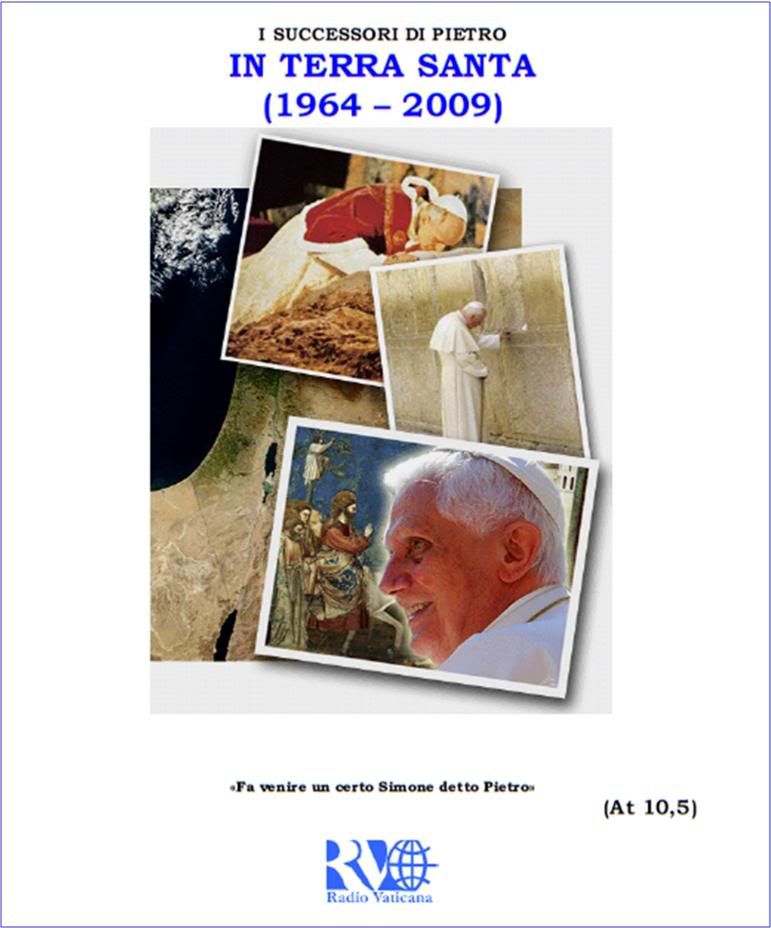
'Summon one Simon who is called Peter' (Acts 10,5)
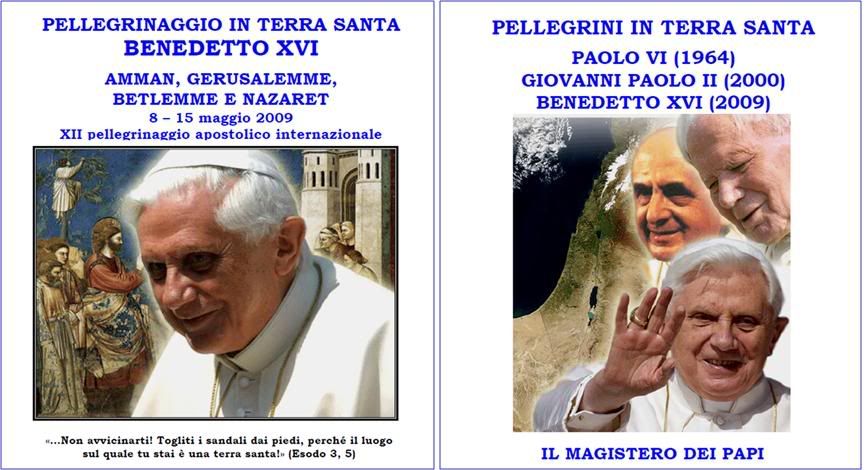 The epigraph on the first volume is:
"Come no nearer! Remove the sandals from your feet, for the place where you stand is holy ground." (Ex 3,5)
[God speaking to Moses]
The epigraph on the first volume is:
"Come no nearer! Remove the sandals from your feet, for the place where you stand is holy ground." (Ex 3,5)
[God speaking to Moses]
[Modificato da TERESA BENEDETTA 07/05/2009 23:28] |
| |
 08/05/2009 04:24 08/05/2009 04:24 |
|
| | | OFFLINE | | Post: 17.338
Post: 57 | Registrato il: 28/08/2005
Registrato il: 20/01/2009 | Administratore | Utente Junior | |
|

 I really question the wisdom of Catholic prelates expressing their political judgment especially in matters as sensitive as the Israeli Palestinian conflict, and especially not when they involve the Pope! I think the Latin Patriarch of Jerusalem has spoken out of bounds in this interview where he makes a few totally gratuitous and even embarrassing statements. It is also given a strange title by the Israeli newspaper Haaretz.
Trembling before the Pope
I really question the wisdom of Catholic prelates expressing their political judgment especially in matters as sensitive as the Israeli Palestinian conflict, and especially not when they involve the Pope! I think the Latin Patriarch of Jerusalem has spoken out of bounds in this interview where he makes a few totally gratuitous and even embarrassing statements. It is also given a strange title by the Israeli newspaper Haaretz.
Trembling before the Pope
By Lily Galili

Four days before Pope Benedict XVI embarks on his trip to the Holy and, the Latin Patriarch in Jerusalem, Fouad Twal, is one of the most worried people in the Middle East. In an exclusive interview with Haaretz yesterday, Twal concluded with a personal confession.
"The thing that worries me most is the speech that the Pope will deliver here. One word for the Muslims and I'm in trouble; one word for the Jews and I'm in trouble. At the end of the visit the Pope goes back to Rome and I stay here with the consequences."
[Is that any way for the head of a local Church to talk?]
In advance of the visit, in advance of the speech that will be delivered here, the local patriarchate sent the Vatican a document enumerating the bleak situation from its perspective with warnings of possible complications. All that remains for Twal is to pray that the words are heeded.
Twal's frank admission embodies all the difficulty of the position he holds. Even at the best of times, it is complicated for the important but shrinking Roman Catholic Church to navigate in this quarrelsome region between Jews and Muslims; it is immeasurably more difficult to do this in advance of the visit by Pope Benedict, from which all sides expect to benefit, when the visit is taking place such a short time after the bloody war in Gaza.
"The tension that the this war has left behind is making the necessary organization and coordination between the Israelis and the Palestinians even more difficult," said Twal, "but it is also making things difficult for me personally. During the war, the faithful wondered what the patriarchate was doing for them, and there was nothing I could do to stop the death machine. I was helpless and I felt humiliated. This is a feeling that I experience here often. Even the Vatican could do very little. It, after all, has to be cautious and to maintain balance."
[For heaven's sake, there are all of 286 Catholics in Gaza - could the Latin Patriarchate not have arranged to take them out of the city, if not to the West Bank, then at least to the southern end of the Gaza Strip where there was no fighting???? No one certainly was expecting him to 'stop the death machine', only to provide practical help. And thankfully, it does not appear that any one of those 286 was killed or injured during the Gaza offensive - or we would not hear the end of it! One more crime to brand those 'murderous Israelis' with.]
Indeed, not everyone in the Arab community agreed with Twal, who had the authority to approve the date of the pope's visit, and chose a time just four months after Operation Cast Lead. The patriarch deliberated the matter, but eventually decided that now, of all times, his flock needed spiritual guidance and encouragement, and Benedict should come and pray with them.
Church officials said that even so, critical voices were few and far between. If not now, when?
In advance of the visit, Twal has a list of expectations and wishes that have to do with agreements between Israel and the Vatican that have not been concluded.
Most of them have to do with tax breaks, the issuing of visas to clergy and greater freedom of movement for them, issues which has been under discussion since the upgrading of diplomatic relations between Israel and the Vatican in 1993.
The implementation of these agreements, as well as the final formulation of the Church's material assets here, could make the life of the Christian community in Israel easier.
Twal expected that these things would have been resolved as a goodwill gesture in advance of the visit. Since this has not happened, he expects that this will perhaps be the outcome of the visit.
To put it differently, Twal is wondering if agreements aren't finalized in honor of the Pope's visit, when exactly will the right time come around?
Nevertheless, it appears that at this stage the main thrust of Twal's prayer is that the visit goes peacefully.
It was only less than a year ago that Twal replaced the legendary Latin patriarch Michel Sabbagh, an Israeli Catholic who, to the distress of the Jews in Israel, adopted a Palestinian identity for himself.
Twal, 69, who holds a doctorate in law, is a Jordanian, a member of the large Al-Uzaizat tribe. He says that in the first century C.E. the tribe accepted Christianity, a fact that earned them a mention in the New Testament.
For generations his clan led a nomadic life, until 150 years ago an energetic priest settled them in the town of Madaba, which Pope Benedict XVI will also visit during his journey through the region.
At the age of 14, enchanted by the personality of a priest who became his "teacher for life," Twal chose the priestly life.
"The Church has brought me back to a life of wandering," he jokes, summing up a diplomatic career that took him from Latin America to Cairo and from Germany to Tunis.
None of those assignments was as difficult and challenging as the one with which he is grappling with in the Holy Land, where he heads the Catholic community in Israel, the Palestinian Territories and Jordan.
When Twal is asked to indicate the main problem the papal visit could solve to make his life easier, he says instantaneously, "The roadblocks."
The difficulties in mobility are embittering the lives of the Palestinians in general and weighing heavily on the functioning of the Church, he says.
"It is hard to move priests, it is hard to move nuns among hospitals. It is hard to get to funerals, it is hard to come to weddings. The entire functioning of our priesthood is hampered," he said.
However, Twal acknowledges that there is another aspect to this difficulty, which is even more distressing.
"I have a hard time with the total distrust that the government of Israel evinces towards us," he said. "You can trust us and you can even get help from us."
Twal is aware of what are seen as improved Jewish-Christian relations. He listens patiently to a description of Jewish claims that in contrast to Muslims, "It's possible to live with Christians," while the Muslims in the territories and in Israel are envious of the Christians "who have a big brother in the Vatican."
He listens, but rejects this outright.
"We don't derive any benefit from what the two sides see as preferential status," he said. "At the roadblocks, even priestly garb doesn't help." [I don't think it is fair for Roman Catholics - even priests and nuns - to seek preferential status compared to other citizens. Roadblocks and checkpoints are a fact of life in frontiers where there is a state of 'perpetual war' as Israeli territory has been since 1948.]
Twal does not agree with the claim that all the open complaints by the Christian community are always directed at the Jews while troubles with Muslims are swept under the rug.
"I say openly that we have serious problems with the Muslims and with the strengthening of Islam in the region," he says. "Christian families in Bethlehem are suffering quite a bit. However, this too is a result of the weakening of the central government in Palestine. When Islam gets stronger we suffer. When the regime gets weaker, we suffer. Look at what is happening to our people in Iraq."
Surprisingly, the situation of the Christians in Gaza under Hamas rule (only 286 Catholics) is in fact just fine.
"We aren't a threat and we're also not an electoral asset," laughed Twal. "We are simply too few for it to be worth opening another front because of us. The children of Hamas families attend our schools. Apart from that, they too know that we have a voice that echoes in the world. You could call this propaganda."
Now he is partner to an effort to obtain exit visas for as many Gazans as possible to allow them to take part in the ceremonies for the pope's visit. This is a complex reality, especially for someone who has also seen better situations for his coreligionists.
Christians constitute only about 3.5 percent of the total population of Jordan, but they are prominent in all walks of life "as though we were 30 percent," he said.
They have always been close to the Hashemite dynasty and now Twal is observing the ease with which the Pope's visit to Jordan is being organized, in contrast to the difficulty between Israel and the Palestinian Authority.
Alongside the practical achievements the patriarch is hoping to reap from the visit, he is well aware of the Jewish expectation of hearing some sort of diplomatic statement, perhaps in the matter of Jerusalem or, in quite a different area, in the matter of the Holocaust-denying bishop. If you read between the lines of what Twal has to say, apparently neither sort of statement will be made.
Bishop Richard Williamson, according to Twal, "is an insignificant nobody" and the Pope's attitude toward him isn't a significant criterion for evaluation.
As for Jerusalem, the patriarch reiterates the Vatican's position to the effect that the city must remain open to adherents of all religions in a arrangement that will be anchored in international law.
He himself would like to hear words of encouragement for the Christian community in the Holy Land, a call for peace, a condemnation of violence and an explicit statement of support for a two-state solution for two peoples from the Pope. [Statements which the Pope has made on several occasions, only not in the Holy Land itself, so there is no reason to suppose he will not reiterate all of the above!]
At the end of the conversation, the patriarch again wonders about the Israeli government's wisdom.
"We need you, but you also need us," he says. "It isn't clear to me why the government of Israel doesn't understand that it cannot separate its attitude towards the local Christian population from its relations with the Vatican. The local church and the Vatican - it's one entity. Maybe this is the opportunity to internalize that."
Interview with
the Apostolic Nuncio in Israel
Translated from
the Italian service of

May 7, 2009
Forty five years since Paul VI’s historic visit and nine years since the Jubilee Year visit of John Paul II, another Pope comes as a pilgrim to the sites made holy by Jesus’s life on earth.
He does so at a time of high tension for the troubled Holy Land where the current ‘truce’, after the Gaza conflict last December, is only a surrogate for true peace.
Benedict XVI is visiting, as he said again yesterday – to pray for ‘the gift of peace and unity’. The atmosphere of high hopes for political and social progress at the time of John Paul II’s visit in 200 has disappeared, and the attitude among the affected populations is one of resignation.
At the same time, the polemics over the Regensburg lecture seem to have tapered off on the Muslim front, and on the Williamson case, among the Jews.
In the autonomous Palestinian territories, the Pope is awaited by the political leaders of the Palestinian Authority and by the refugees in the Aida camp near Bethlehem, where they have lived in extreme poverty since 1948.
[According to the Radio Vatican briefing dossier, the Palestinian refugee camps are a misnomer today. They started out as refugee camps under UN sponsorship and support for Palestinians displaced by the first Arab-Israeli War in 1948 who chose not to flee to other countries.
But over the years, they have evolved into veritable towns with permanent dwellings including condominiums. Palestine statistics as of the end of 2006 estimate the population of the Aida camp at 3,260.
It seems that after six decades, their problem continues to be economic - the lack of opportunities for gainful employment in the Palestinian territories, especially after Israel was constrained to restrict employment of Palestinians drastically, because of all the suicide bobbing attacks on Israeli citizens.
Who can deny that since these restrictions were tightened and Israel put up the security fence, it's been a long time since we've read of a suicide bombing attack in Israel (knock on wood!)? I believe that's why Hamas resorted to lobbing daily rocket attacks on the southern Israeli cities and towns.]]
The Pope’s visit to them is an expression of his ‘closeness to the suffering of the Palestinian people'.
The Israeli government budgeted 10 million euros for organizing the visit, and another 10 million dollars to help 44 Catholic schools prepare their 24,000 students (Christians and Muslims) to welcome the Pope.
Israeli newspapers have been more concerned with reporting on the preparations than with commentary [Really????] and state radio has been broadcasting spots to publicize the various papal events.
Here is an interview with Mons. Antonio Franco, the Apostolic Nuncio in Jerusalem on the visit.
MONS FRANCO: There is great expectation for what the Pope will say. It is true that everyone hopes his words may reactivate a commitment to a genuine search for solutions to a situation that has dragged on for decades.
Excellency, this trip has a spiritual and religious character. You think it can be given a political reading and would it not be instrumentalized that way?
I would distinguish between a political reading and instrumentalization. Even a religious message within a social reality is a bit political, if we understand political in its etymology, polis, something that concerns life in society.
As for instrumentalization, I have tried all ways that I can to make it clear and to avoid any possibility that any one side can used the Holy Father for their own purposes which I am sure each side will consider noble, but which would be resented by the other. I really hope this is understood – so far, the press spears to get it.
What significance is there to the Pope;s visit to the Holocaust memorial which still presents Pius XII in a negative light?
Everyone asks me this, and I have explained that it is to pay a tribute to the Holocaust and to pray for its victims. It is a historical reality which should provide even us Christians with an occasion for reflection. That is the significance.
Now, there’s the other aspect. You know quite well that we are trying to develop, trying to establish a meeting point where we can reflect together, read together all the available documentation on World War II… And we have now reached a stage where one can speak of a historic-critical study. With time, there’s a certain distance from emotions even if they continue to run high, and I am confident this work will continue, indeed that it will bear fruit. It requires some patience, but it will bear fruit. Perhaps, creating a new mentality will make us look at a future in which events like the Holocaust will not happen again.
Is there still a problem with getting the permits for the Gaza Catholics to attend the Pope’s Mass in Bethlehem?
Personally, I am convinced we will get the permits. Not for Jerusalem, but for Bethlehem. I think at the last moment we will get it, because otherwise, it will look bad for Israel, The international media is watching this.
What exactly do you expect from this visit coming at a time like this?
In the first place, that it may, so to say, reduce the tensions and provide new breath, some oxygen, in order to resume the efforts to build peace.
It is a great joy for me personally, and clearly, we are all very moved that the Pope will be a with us for this brief time. But I have great hope that the Lord, through Benedict XVI, wishes to have his Word heard and will effect one of his miracles to set in motion something that will lead to a just and lasting peace, as the Pope has called it.
Jordanian prelates speak
Translated from
the Italian service of

May 7, 2009
Jordan will be the first stage of the Pope’s pilgrimage to the Holy Land. In Amman on Wednesday afternoon, Vicar of the Latin patriarch for Jordan, Bishop Salim Sayegh; the bishop of Petra and Filadelfia of the Greek-Melkites, Mons. Yaser Ayyash’ and the Apostolic Nuncio in Jordan, Archbishop Francis Assisi Chullikat, held a news conference. We have a report from Pietro Cocco:
Speaking in the name of the bishops of Jordan, the Latin Vicar Sayech underscored that they are all Jordanian citizens as a token of the entire country’s joyful participation in Pope Benedict’s visit.
Her summarized the importance of the Pope’s visit in three aspects:
First, pastoral. The Pope comes to visit his children, especially the poorest, whom he will meet shortly after the welcome ceremony when he visits the Regina Pacis Center for the rehabilitation of handicapped citizens and their reinstatement in society. He will also meet representatives of Jordanian youth – the hope and future of the Church in Jordan.
The vicar said that the Pope’s Mass at Amman Stadium Sunday morning is a ‘great grace... when the Successor of Peter will pray for us and with us". The pastoral aspect, he said, is very significant for Jordanian Christians as an encouragement to stay here.
The second aspect is pilgrimage, Jordan has been the entry to the Holy Land for the last three Popes. Jordan has the site of Jesus’s Baptism, the memorial to Moses on Mt. Nebo, and even the Shrine of Elijah and Mukawir (?), where St. John the Baptist was beheaded.
Finally, inter-religious dialog. Bishop Sayegh recalled the long tradition of peaceful coexistence among the Muslim majority and the Arab Christians of Jordan. The Pope will visit the Al-Hussein bin Talal Mosque in Amman where he will meet with Muslim leaders to encourage constructive dialog.
Pietro Cocco also spoke to the Apostolic Nuncio in Jordan, Mons. Francis Assisi Chullikat.
MONS. CHULLIKAT: Of course, this is a most important visit, one that the entire Church in the Holy Land has been awaiting. In fact, since the start of Benedict XVI’s Pontificate. Especially, since Christians in the Holy Land have been going through a difficult time and are anxious for words of hope and encouragement from the Holy Father.
They know that the Pope’s words have great resonance not only in the Holy Land but on the regional level. And as he has said himself, he is coming to pray for peace and unity on this pilgrimage.
As such, it will be very prayerful, intensely so, for the Church in the Holy Land, as well, so that it can continue to give an example of courage and faith such as they have provided for the Church all these centuries, since the beginning of Christianity.
The Church and the Christian community in Jordan enjoy a more tranquil situation than elsewhere in the Middle East. What can they bring to the rest of the region where so many families are afflicted?
Jordan has an important role because the Jordanian government is actively trying to promote peace in the region, particularly between Israel and Palestine. The peacecul coexistence among Muslims and Christians here in Jordan is evident proof and a sign of encouragement for Christians in the rest of the region.
Christians from other parts of the Middle East have no problems coming to Jordan, which is the site of many international meetings sponsored by the Church. Recently, a Council of Christian leaders was formed in order to get formal recognition for the most important Christian chuches represented here. These are examples we hope that the rest of the region will emulate.
BY THE NUMBERS
- The Catholic Church administers 36 hospitals, clinics, orphanages, nurseries and other charitable institutions in the region.
- Catholics make up nearly 2 percent of the population in the countries that the pope will visit.
- In Jordan, there are 109,000 Catholics among the country's 5.7 million people. Nearly 31,000 children are enrolled in 123 Catholic schools. There are four bishops, 103 priests and seven major seminarians.
- In Israel, there are 130,000 Catholics among the population of 7.2 million Israelis. Nearly 44,000 students are enrolled in 192 Catholic schools, which range from kindergarten to the university level.
[Modificato da TERESA BENEDETTA 08/05/2009 11:12] |
| |
 08/05/2009 11:43 08/05/2009 11:43 |
|
| | | OFFLINE | | Post: 17.387
Post: 106 | Registrato il: 28/08/2005
Registrato il: 20/01/2009 | Administratore | Utente Junior | |
|


The Holy Father's flight to Amman left Rome at 9:34 this morning.
BON VOYAGE, HOLINESS!
WITH ALL OUR LOVE AND PRAYERS

May 8
St. Peter of Tarentaise (France, 1107-1184)
Cistercian monk
OR today.
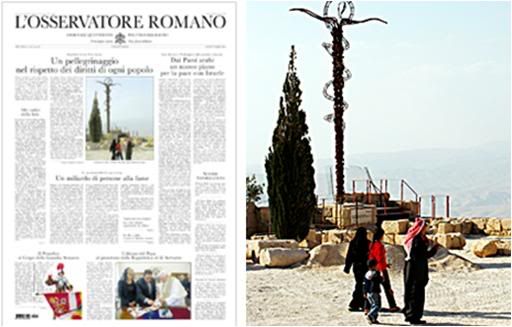 Illustration: tourists on Moses's Mount (Nebo) near Amman.
Illustration: tourists on Moses's Mount (Nebo) near Amman.
Benedict XVI in the Holy Land:
A pilgrimage in resopect of the rights of every people
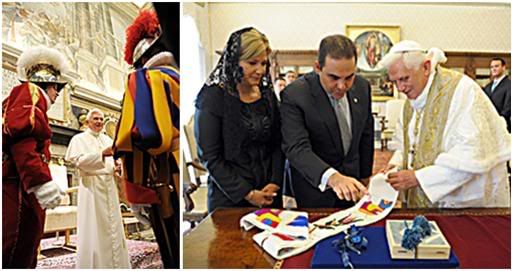
Other papal stories on Page 1: The Pope greets this year's new Swiss Guard recruits and
meets with the President of El Salvador. Other stories: the Arab nations offier a new
peace plan to Israel for discussion with the US; the Food and Agricultural Organization
of the United Nations forecasts one billion people will go hungry in 2009.
THE POPE'S DAY
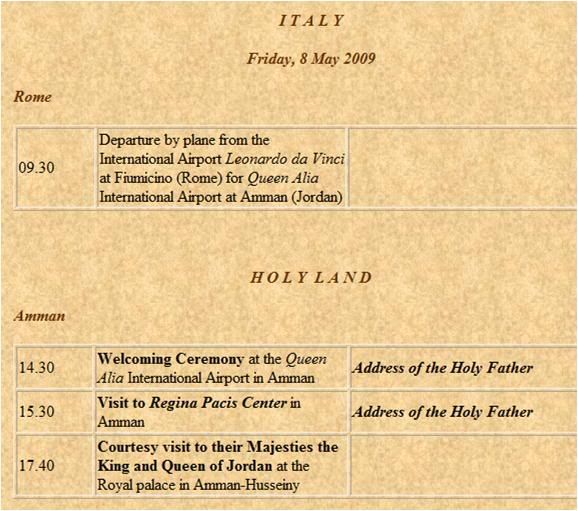 Day 1 - AMMAN, JORDAN
Day 1 - AMMAN, JORDAN
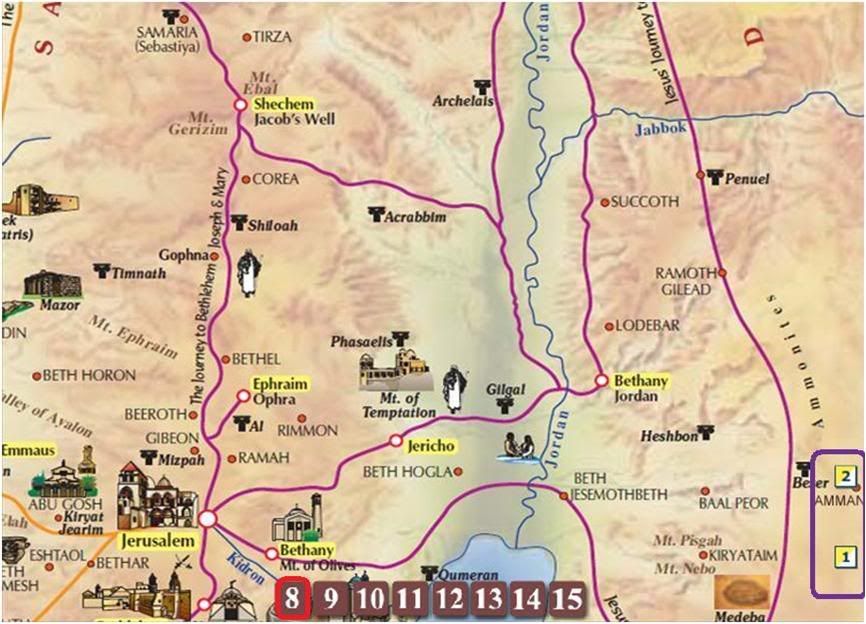 ALL REPORTS ABOUT THE HOLY FATHER'S TRIP WILL NOW BE POSTED DIRECTLY
ALL REPORTS ABOUT THE HOLY FATHER'S TRIP WILL NOW BE POSTED DIRECTLY
IN THE 'PILGRIMAGE' THREAD.
[Modificato da TERESA BENEDETTA 08/05/2009 11:54] |
| |
 09/05/2009 12:55 09/05/2009 12:55 |
|
| | | OFFLINE | | Post: 17.397
Post: 115 | Registrato il: 28/08/2005
Registrato il: 20/01/2009 | Administratore | Utente Junior | |
|

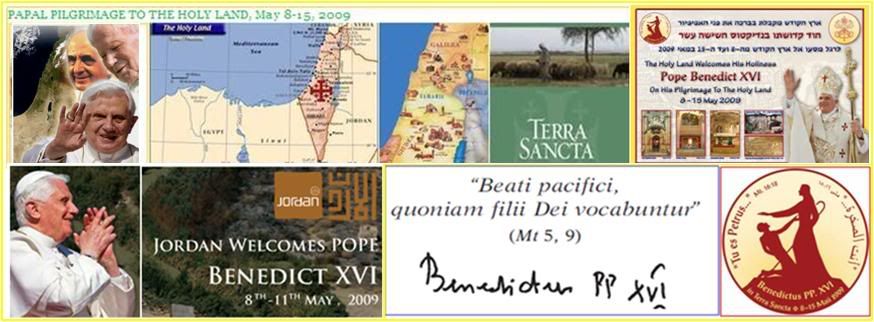
May 9
 St. Catherine of Bologna (Italy, 1413-1463
St. Catherine of Bologna (Italy, 1413-1463
Nun and Mystic, Patroness of Artists
OR today.
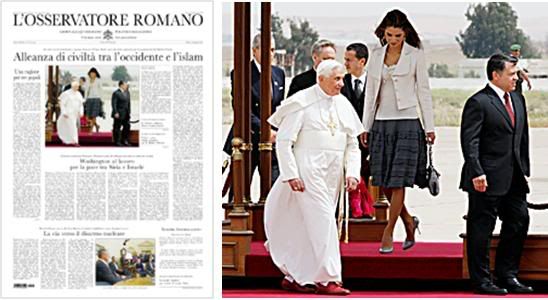
En route to Jordan and upon landing,
the Pope asks for lasting peace and justice in the Middle East:
An alliance of civilization between the West and Islam
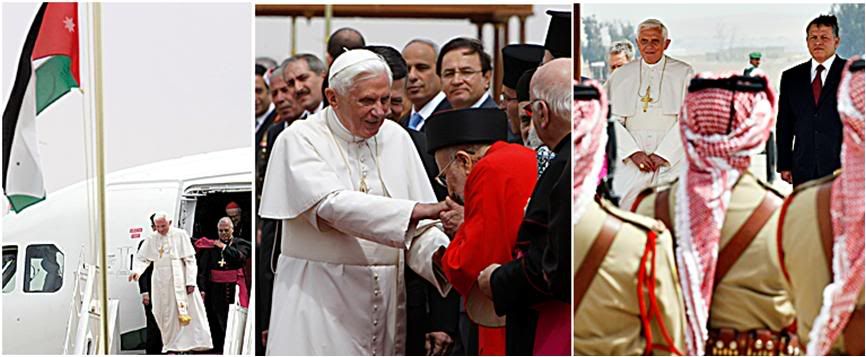 Coverage of Day-1 of the Pope's pilgrimage. Other Page 1 stories: Washington promoting peace between Syria and Israel; Obama meets Russian Foreign Minister to discuss nuclear disarmament.
THE POPE'S DAY
Coverage of Day-1 of the Pope's pilgrimage. Other Page 1 stories: Washington promoting peace between Syria and Israel; Obama meets Russian Foreign Minister to discuss nuclear disarmament.
THE POPE'S DAY
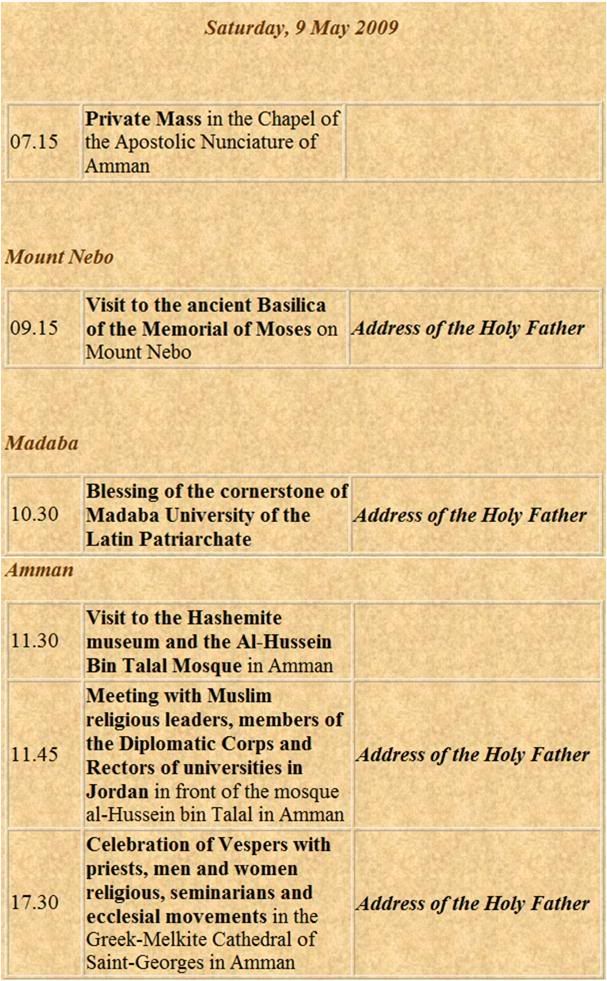
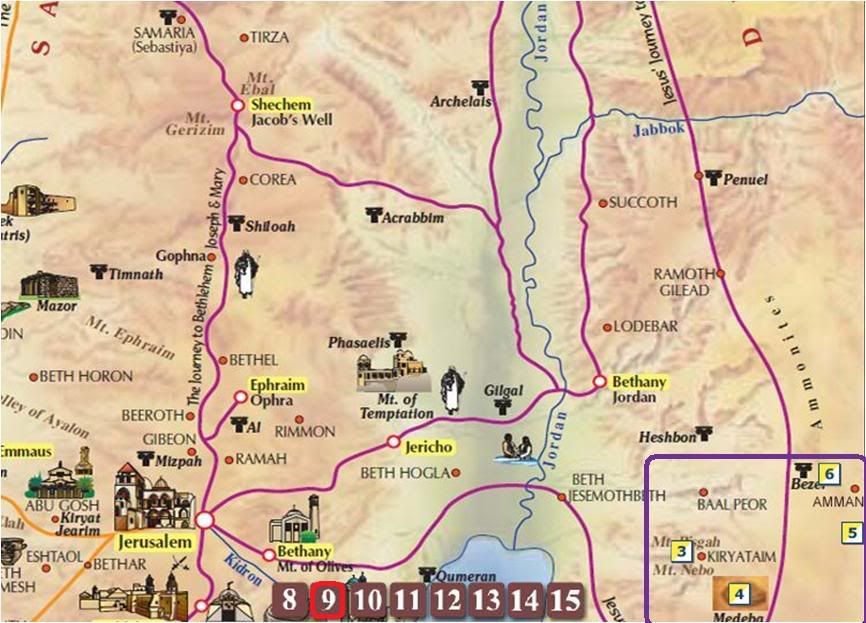
[Modificato da TERESA BENEDETTA 09/05/2009 12:56] |
| |
 16/05/2009 14:16 16/05/2009 14:16 |
|
| | | OFFLINE | | Post: 17.455
Post: 173 | Registrato il: 28/08/2005
Registrato il: 20/01/2009 | Administratore | Utente Junior | |
|
THE REPORTAGE ON THE POPE'S PILGRIMAGE TO THE HOLY LAND IS CONTAINED IN THE THREAD 'PAPAL PILGRIMAGE TO THE HOLY LAND'.
|
| |
 16/05/2009 14:17 16/05/2009 14:17 |
|
| | | OFFLINE | | Post: 17.456
Post: 174 | Registrato il: 28/08/2005
Registrato il: 20/01/2009 | Administratore | Utente Junior | |
|

May 16
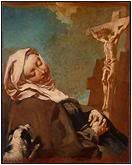 St. Margaret of Cortona (Italy, 1247-1297)
St. Margaret of Cortona (Italy, 1247-1297)
Franciscan Tertiary
OR today.
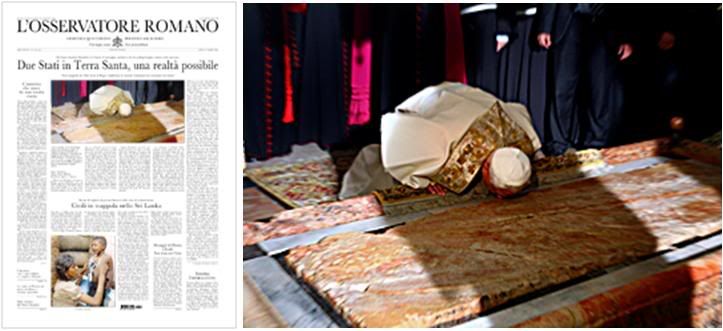
From the Holy Sepulcher, Benedict XVI launches the concluding message of his pilgrimage of hope
Two states in the Holy land is a possible reality
In his farewell address in Tel Aviv, the Pope reaffirms the close relations between Christians and Jews
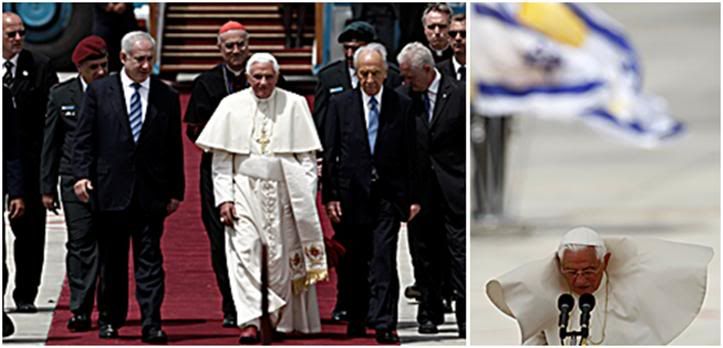 The issue carries coverage and texts of the Pope's trip, from the events in Nazareth on Wednesday following the Mass,
The issue carries coverage and texts of the Pope's trip, from the events in Nazareth on Wednesday following the Mass,
his last event-packed morning in Jerusalem, and the departure.
AT THE VATICAN TODAY
No events scheduled for the Pope.
Presumably, he is resting in Castel Gandolfo.
The Vatican announced the Holy Father has named Cardinal Jose Saraiva Martins,
emeritus Prefect of the Congregation for the Causes of Sainthood, as his special
envoy to preside at the election of the new Minister General for the Order of
Friars Minor whioh will take place at the Franciscan mother house in Assisi
on June 4.
The Vatican Press Office also issued a reminder to journalists covering the Pope
about preparations for the pastoral visit to Monte Cassino on May 24.
|
| |
 17/05/2009 00:31 17/05/2009 00:31 |
|
| | | OFFLINE | | Post: 17.458
Post: 176 | Registrato il: 28/08/2005
Registrato il: 20/01/2009 | Administratore | Utente Junior | |
|
 I will be posting new items regarding the Pope's recent Holy Land pilgrimage on this thread first and wil cross-post in the PILGRIMAGE thread, which I will continue to build with all the photos, stories adn commentaries I was unable to post during the trip itself.
I will be posting new items regarding the Pope's recent Holy Land pilgrimage on this thread first and wil cross-post in the PILGRIMAGE thread, which I will continue to build with all the photos, stories adn commentaries I was unable to post during the trip itself.
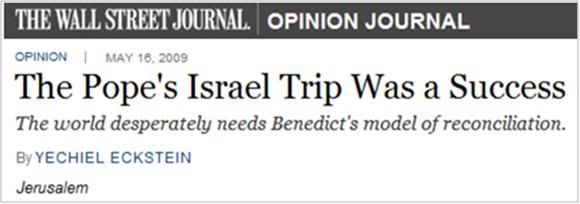
Most Israelis seem to agree that the pope's just concluded trip to Israel wasn't a raving success. Far from healing wounds, his address at the Yad Vashem Holocaust museum garnered harsh criticism for failing to adequately address the horrors memorialized there.
I see the visit in a much more positive light.
Jewish-Christian relations have always been of a wary sort, laced with mutual suspicions that have deep theological roots, and with painful memories of persecution and anti-Semitism. But in the past half-century, the church's attitude toward Jews has undergone a fundamental shift.
Nostra Aetate -- the Declaration on the Relations of the Church with Non-Christian Religions, issued by the Second Vatican Council and published in 1965 -- was the harbinger of the change in Catholic attitude toward the Jews and their faith. Later, Pope John Paul II further advanced the process of reconciliation.
Karol Wojtyla had been a fighter in the Underground against the Nazi regime and had many close Jewish childhood friends. Deeply aware of the horrors that befell the Jews during World War II, Pope John Paul's personal sympathy for and close acquaintance with the Jewish people led to an era of fruitful dialogue and rapprochement between Jews and Catholics.
This healing was made possible mainly because the pope, together with Jewish leaders, focused on shared values, biblical traditions and moral principles common to both faith communities.
Pope Benedict XVI does not yet enjoy the goodwill his predecessor generated. Aspects of his past and statements he has made are arguably controversial and have generated criticism -- some valid -- from Jews.
But this week, he arrived in Israel for the first papal visit in nine years. I was part of a delegation that greeted him in a special ceremony at the airport. Sadly, a number of Israeli political and religious leaders refused to participate.
Had they attended, they would have heard the head of the Church speak of the terrible suffering of the Jewish people during the Holocaust, their biblical rights to the land of Israel, and the deep bonds between the Christian and Jewish faiths.
Had they joined him on his journey, they would have heard him lash out against Holocaust denial, condemn anti-Semitism -- past and present -- and seen him pray at the Western Wall.
They would have witnessed him meeting with rabbis, political leaders and even the parents of kidnapped Israeli soldier Gilad Shalit, who is still being held hostage in Gaza. These are just a few of the acts of solidarity and gestures of reconciliation the critics would have witnessed during the Pope's pilgrimage.
Of course, the Pope is not above reproach. But there is no question that this Pope deeply respects Judaism and stands solidly for the security of the state of Israel.
As someone who has dedicated the past 35 years to fostering respect between Jews and Christians, I was deeply encouraged by the Pope's visit and believe that it has contributed significantly toward supplanting the dark and violent history between Jews and the church.
The world desperately needs this model of reconciliation. I pray that it extends to our Muslim cousins too, so that all the children of Abraham might find peace with one another.
Rabbi Eckstein is founder of the International Fellowship of Christians and Jews.
 Probably the best and most refreshing item I have read so far that captures the essence of the Pope's pilgirmage for peace and sees it from the right perspective - by a contributing writer to First Things Magazine and the blogger known as The Anchoress. Yoo bad it's not in the mainstream press.
Probably the best and most refreshing item I have read so far that captures the essence of the Pope's pilgirmage for peace and sees it from the right perspective - by a contributing writer to First Things Magazine and the blogger known as The Anchoress. Yoo bad it's not in the mainstream press.
Pajamas Media - pajamasmedia.com/
started out in 2005 as an affiliation of the 90 most influential blogs and has nwo evolved into a 24/7 news and commentary network.
Pope brings his gentle touch
to the Holy Land
Benedict pushed aside entangled, energy-sapping emotionalism
to propose a reinvestment in our shared humanity.
by Elizabeth Scalia

May 16, 2009
Israel’s unending struggle is written into her very name, Isra-El: “struggles with God.”
Since its formation in 1948, the world has watched the tumult of the modern state of Israel and one thing remains unclear: is the “struggle” between Israel herself and God, or between Israel and the world, with God beside her?
Either way, that Israel will always struggle should by now be understood, whether viewed through the lenses of history or scripture.
Pope Benedict XVI has been traveling about the Holy Land as a “pilgrim of peace” and each step — whether in Jerusalem or Bethlehem or Nazareth — has been a necessarily careful one, as though the built-up sludge of incessant struggle may hide a stumbling block.
The squabbling children of Abraham who populate this land cry out for just resolutions to their conflicts, then wearily reject them all. Like nesting birds nicking shiny things, they grab at anything that offers a gleam of support for their staked claim and reject what does not shine their way.
Thus, at an “inter-religious dialogue” the Pontiff’s call for mutual understanding inspired a Jew-hating diatribe by Sheikh Tayseer Tamimi and the Pope’s encouragement at Yad Vashem was taken, by some, for coldness.
Pope John Paul II was a dramatic pipe organ of a man; with a chord he could shake a crowd and bring it to its knees. When he spoke at Yad Vashem in 2000 his remarks were emotional and Israel’s wail, ever-present its heaving bosom of struggle, found some release in them.
By comparison, Pope Benedict XVI is a cerebral piano; he builds a thoughtful piece, note by note, and trusts that the listener will follow along:
I have come to stand in silence before this monument, erected to honor the memory of the millions of Jews killed in the horrific tragedy of the Shoah. They lost their lives, but they will never lose their names: these are indelibly etched. … Their names are forever fixed in the memory of Almighty God.
Eschewing emotionalism for pragmatism, Benedict’s less empathetic remarks met mixed reviews. Some Jews, looking for a personal balm, complained that they’d “missed the tone of shared grief.”
Others said empathy-seeking “missed the point,” that the Pope was redirecting attention away from past horrors, in order to focus on present dangers in the rising of a “new” global anti-Semitism.
A reading of all of Benedict’s remarks throughout this pilgrimage suggests that he is doing more; he is pushing aside entangled, energy-sapping emotionalism to propose a reinvestment in our shared humanity.
This last great man of the 20th century lived through Nazism and statism and he understands the societal weaknesses that spawned them. His speeches in the Holy Land are of a piece, meant to paint the “big picture.”
Yes, Israel has enemies who would push all Jews into the sea, and yes, Palestinians must have a homeland if they are to have any hope, and yes, both of these truths are tragically complex.
But any solutions, suggests Benedict, will have to be built upon the foundation of “our common belief in one God, the Father of the human family.”
This seems a simplistic response to ancient wounds and rivalries, where grudges are long and trust has been shattered, but Benedict knows that a strengthened family can be a bulwark against encroaching evil and the abode of healing and grace. A healthy family knows no “stalemate of fear.”
In Nazareth, he said:
In the family each person, whether the smallest child or the oldest relative, is valued for himself or herself, and not seen simply as a means to some other end. Here we begin to glimpse … the essential role of the family as the first building block of a well-ordered and welcoming society. …
Let us reaffirm here our commitment to be a leaven of respect and love in the world around us. … Let everyone reject the destructive power of hatred and prejudice, which kills men’s souls before it kills their bodies!
Emotions have their place, but at Nazareth, something good comes as Benedict speaks the truth: nothing will change until the squabbling children of Abraham can remember that they are family, first.
Not anonymous “others,” but children of one Almighty Parent who loved them equally into being and who knows them “by name.”
And if their name is Israel, this Parent has promised, they will not struggle alone.
[Modificato da TERESA BENEDETTA 19/05/2009 06:23] |
| |
 17/05/2009 15:31 17/05/2009 15:31 |
|
| | | OFFLINE | | Post: 17.459
Post: 177 | Registrato il: 28/08/2005
Registrato il: 20/01/2009 | Administratore | Utente Junior | |
|

 In the Holy Land - a desire for peace
In the Holy Land - a desire for peace
above and beyond the difficulties
Translated from
the 5/17/09 issue of

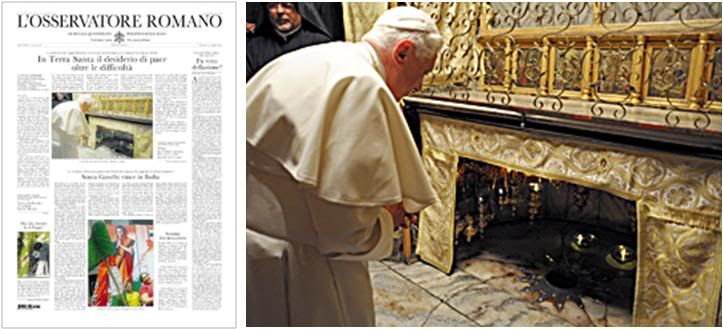 The Pope's statement to newsmen on board the papal flight on the return from Tel Aviv to Rome on Friday afternoon:
The Pope's statement to newsmen on board the papal flight on the return from Tel Aviv to Rome on Friday afternoon:
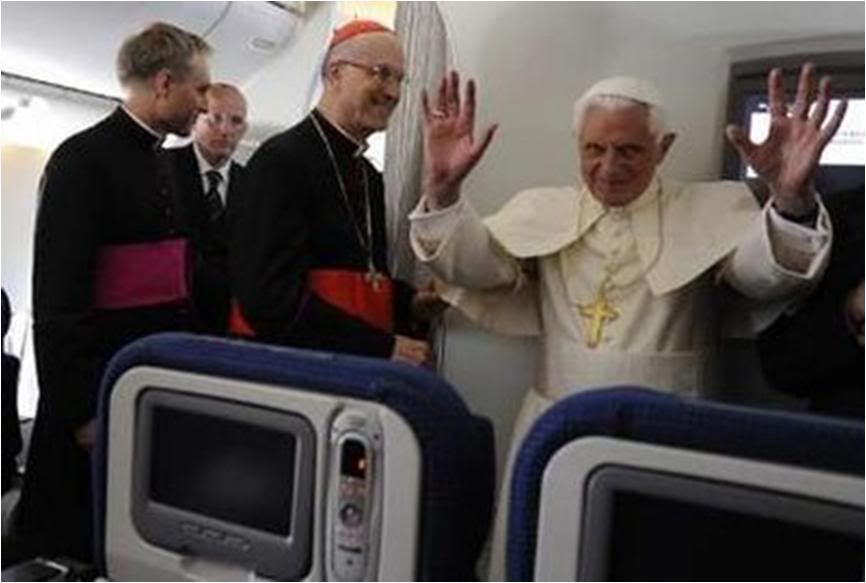
Dear friends,
Than you for the work you have been doing, I imagine how difficult it must have been, surrounded as it was by so many problems, so much moving about, etc. So I wish to thank you for having accepted all these difficulties in order to inform the world about this pilgrimage, thus inviting others to take part in the pilgrimage to the holy sites.
I briefly summarized this trip in my address at the airport, and I do not wish to add much. Though I can cite so many details, such as that moving descent to the deepest point on earth at the Jordan River, which, for us, is also a symbol of the descent of God, the descent of Christ to the most profound points of human existence; the Cenacle, where the Lord gave us the Eucharist, where the Pentecost took place, the descent of the Holy Spirit; the Holy Sepulchre, and so many other impressions, but I don't think this is the time to dwell on them.
Nonetheless, I would like to make a few points briefly. I had three fundamental impressions:
The first is that I found everywhere, in all the environments - Muslim, Christian, Jewish - a decided readiness for inter-religious dialog, for encounters and collaboration among the religions.
It is important that everyone sees this, not only as something, shall we say, inspired by political reasons arising from the given situation, but as a fruit of the same nucleus of faith.
Because to believe in one God who created us all, Father to all of us, to believe in this God who created mankind as a family, to believe that God is love who wants love to be the dominant force in the world, implies such an encounter, the necessity of such an encounter, of dialog, of collaboration, as an exigency of faith itself.
The second point: I also found an ecumenical climate that is very encouraging. We had so many encounters of great cordiality with the Orthodox world. I was able to speak to a representative of the Anglican Church and two Lutheran representatives, and one can see that the very atmosphere in the Holy Land encourages ecumenism.
And the third point: there are huge difficulties [in the region] - we know that, we have seen and felt that. But I have also seen a profound desire for peace on the part of everyone.
The difficulties are ever more visible, and we should not hide them - they are there, they must be cleared up. But the common desire for peace, for fraternity, is not as visible, and I think we should also speak of this, encourage everyone in the will to find solutions which will certainly not be easy for these difficulties.
I came as a pilgrim for peace. Pilgrimage is an essential element in many religions. It is in Islam, in the Jewish religion, and in Christianity. It is also the image of our existence, which is a journey forward, towards God, and therefore, towards the communion of mankind.
I came as a pilgrim, and I hope that many will follow these steps and thus encourage unity among the peoples of this Holy Land, and become messengers of peace to them.
Thank you.
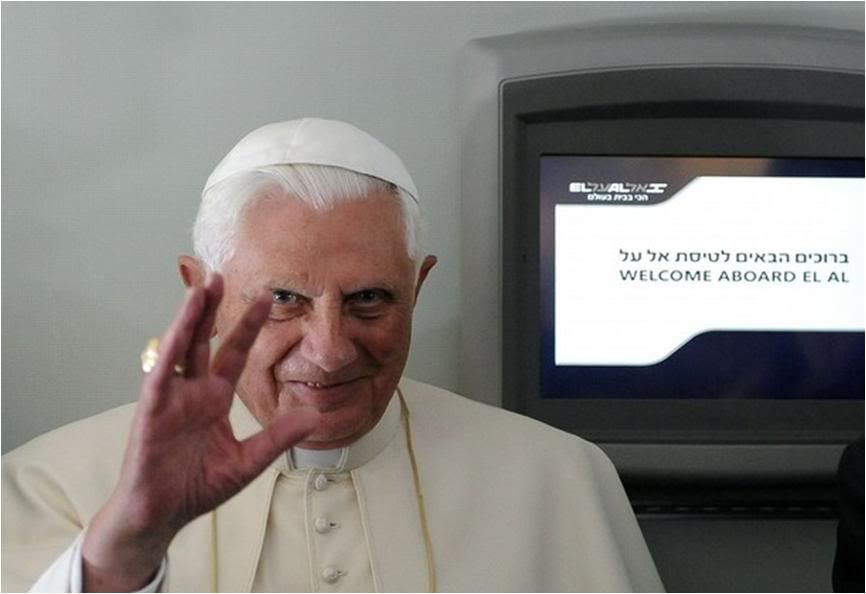
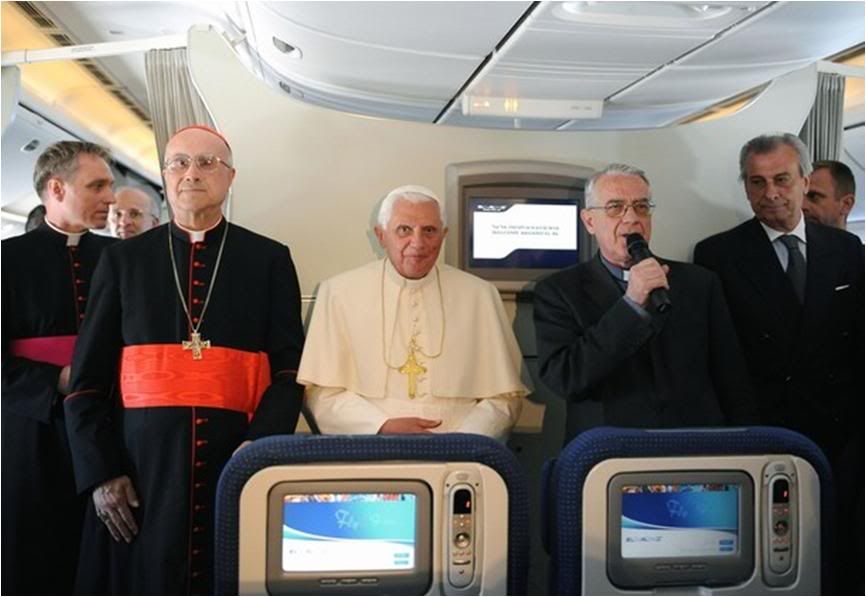 Holy Land prelates on the Papal pilgrimage:
Holy Land prelates on the Papal pilgrimage:
The Pope has planted hope -
Now it's time for everyone to work for peace
by Gianluca Biccini
Translated from
the 5/17/09 issue of

JERUSALEM - "Benedict XVI has planted seeds of hope in these places where everything recalls the Gospel. It is now up to us, pastors of this small flock, to do what we can so that they may bear fruits of peace, reconciliation and unity."
Both the Latin Patriarch of Jerusalem and the Franciscan Custodian of the Holy Land used similar words to describe the Pope's recent pilgrimage to the Holy Land. Both were with him every step of the way during eight very intensely active days.
Both increasingly became certain that the Pope's trip was fully achieving its objectives and that now it is the turn of all the Catholics - from the highest ranking prelate down to the most humble lay faithful - in these places blessed by the earthly passage of the Lord, to stay on the path indicated by the Successor of Peter.
"Above all, he has given us conviction and courage," said Mons. Fouad Twal, speaking in behalf of the Assembly of Catholic Ordinaries (Bishops) of the Holy Land. "We are not expecting miracles, but we should pray and give the Lord time to harvest what has been sown."
By design, one of Benedict XVI 's recurrent messages during the trip was to call on Christians not to abandon the land of their ancestors.
"He has called on us to stay, to endure, notwithstanding the complexities of the situation," Mons. Twal continues, "if only because these are also the places associated with the Cross. It is a challenge that must be accepted even in tragic circumstances. The Pope himself could see with his own eyes and touch with his hands the difficulties that we have to live with every day. This makes us feel him closer to us, to feel the closeness of the universal of the Church. The voice of the Pope reaches around the world and now, we hope for more prayers for the Holy Land, greater solidarity in every sense."
A particular role in this arduous path to peace among all the peoples of the region can be played by the family. Benedict XVI concluded - in celebrating two Masses dedicated to the family, first in Amman then in Nazareth - a triennium declared by the local Church to revive and revalue this fundamental social institution.
"I think it was particularly important for Jordan," said Mons. Twal, who is Jordanian by birth. "The predominantly tribal structure of society, focused around typically traditional faith, necessarily rests on the family as an institution. On Sundays, everyone goes to Church together - grandparents, parents and children - and perhaps, it is not by chance that in Jordan, political and family stability coincide".
These family values also reflect on vocations for the consecrated life. During the Pope's visit, Mons. Twal repeaedly pointed with pride toi the fact that all available openings to the seminary in Jordan had been taken, requiring the opening of a branch.
The situation is different in Israel and the Palestinian Territories where Christians are simply exhausted by the incessant conflict.
"Sixty years of war," he said, "is too much for everyone. People can no longer endure it, and that is why they are leaving. But I see some prospect of hope. The visit of the Pope will be followed by a visit from the President of the United States, and recent signals from the international community and from Arab and Israeli leaders themselves lead us to hope".
"Thus I say to the children of our flock: 'You are called on to live a mission. If you go away, perhaps you will find work, you will have a home, and you will never have to go through checkpoints, but you will not find the Holy Land elsewhere'."
[I am troubled by Mons. Twal's obsessive objection to checkpoints. For as long as Palestinian terrorists are being trained and obviously just waiting for any opportunity to target Israeli civilians, Israel cannot be faulted for having these checkpoints. It would be derelict to its duty to protect its citizens if it did not have them. Christians, including priests, have to Live with it, as everyone else does - it's a land at war; that's part of the Cross that Christian residents have to bear for now.
No one has complained that the Israelis abuse the use of these checkpoints [just as no one questioned the use of Allied checkpoints between the two Berlins at the time of the Wall]. Of course, it is an inconvenience; but it's something residents have to factor into their daily life for now. The Israelis do not have a choice: Palestinian terrorists have not renounced violence and continue to vow they will not stop until Israel is driven out to sea.]
Fr. Pierbattista Pizzaballa, head of the Franciscan Order's centuries-old Custody of the Holy Land, sees an 'absolutely positive' net gain from the Holy Father's visit.
This young and highly cultured friar, who has been entrusted with the great responsibility of managing the holy sites of Christianity, underscores above all the inter-religious value of Benedict XVI's visit.
"First, he has infused strength in the Christians of the Holy Land. And in the inter-religious context, he has spoken with clarity to Muslims and Jews alike."
On the eve of the Pope's visit, he said there had been apprehensions that the visit could be instrumentalized by various sides, but "the Pope, without rhetoric, simply said what is in his heart, in a spirit of freedom and serenity, which left a sense of gratitude as well as of liberation among his listeners. And to us, he left the certainty that we can do everything in the light of greater respect for the local Church".
Reviewing the carious stages of the pilgrimage, Fr, Pizziballa recalled two extremes: "the Cenacle - poor when seen exteriorly, but nevertheless spiritually intense", and "the Mass of Nazareth, attended by an ocean of the faithful".
Both, he said, are almost a metaphor for the Holy Land, which is both "the Cenacle with its poverty, its difficulties, its isolation", and "Nazareth with the beauty, enthusiasm and passion of the Mass". and in between, the Mass in Bethlehem which was memorable and will leave an indelible sign."
Then, there were the Pope's repeated appeals for peace, "which echoed in each of the 31 addresses delivered by the Holy Father during the trip - a record for his Pontificate - but was also repeated in all the languages of the region: SHALOM, SALAAM, PEACE - which we saw on all the streamers and posters, which we heard in various songs, slogans and chants."
Now, says Fr. Pizzaballa, "it is necessary to prepare this peace, which must be based on the integrity and dignity of each person, on relationships that are absolutely free, and on reciprocal trust.It will require much time. But the signals and gestures during the Pope's visit pointed to the goal, and more importantly, that this goal can be reached. Not as a utopian dream, but something which, if genuinely willed, can become reality."
Finally, the Pope, he said, recalled the ideals of St. Francis many times over when he spoke about walls, the inability to speak to each other, that can be circumvented with simple actions, as St. Francis did with the sultan.
"This recognition, besides making us very happy," said Fr. Pizzaballa, "also stimulates us to go on doing our work with passion and love. Above all, we will continue to help Christians to stay where they are, supporting them with homes and employment, which are the two cornerstones of our multi-century presence in the Holy Land."
[Modificato da TERESA BENEDETTA 19/05/2009 06:29] |
| |
 17/05/2009 15:50 17/05/2009 15:50 |
|
| | | OFFLINE | | Post: 17.460
Post: 178 | Registrato il: 28/08/2005
Registrato il: 20/01/2009 | Administratore | Utente Junior | |
|


May 17
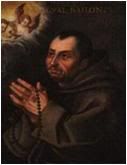 ST. PASCUAL BAYLON (Spain, 1540-1592)
ST. PASCUAL BAYLON (Spain, 1540-1592)
Franciscan tertiary and mystic
'Seraph of the Eucharist'
OR today.
 The Holy Father at the Grotto of the Nativity in Bethlehem.
The Holy Father at the Grotto of the Nativity in Bethlehem.
At the end of his Holy Land pilgrimage, Benedict XVI says inter-religious dialog is an exigency of faith and that
'In the Holy Land a desire for peace above and beyond the difficulties'
(The Vatican provides the text of the Pope's statement to newsmen on the flight back to Rome from Tel Aviv.)
 Other Page 1 stories: An editorial commentary on the risk of zero-tax policy; and ruling Indian coalition led by Sonia Gandhi's
Other Page 1 stories: An editorial commentary on the risk of zero-tax policy; and ruling Indian coalition led by Sonia Gandhi's
Congress Party wins legislative elections over rightist nationalist party. There's an inside-page story on the children's book
MAX E BENEDETTO on what Max the sparrow says about what exactly does the Pope do all day! (Left photo is of the Pope at
the Caritas Baby Hospital in Bethlehem).
THE POPE'S DAY
'Regina caeli' at St. Peter's Square- The Holy Father speaks about his recent pilgrimage to the Holy Land
and makes a special appeal for the belligerents in Sri Lanka to lay down their arms.
[How surprising that after such an intensive trip abroad, the Holy Father is not 'recovering' at Castel Gandolfo!]
A wonderful image from the inside pages of the OR today:
(I hope it is available soon in a larger format -
I can't enlarge the thumbnail further).
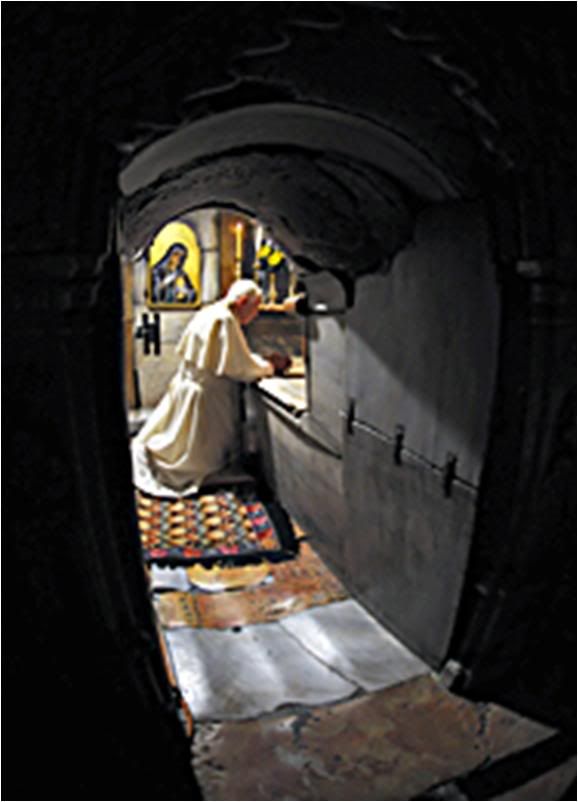 The Holy Father prays before Chrit's tomb in Jerusalem
The Holy Father prays before Chrit's tomb in Jerusalem. |
| |
 17/05/2009 16:07 17/05/2009 16:07 |
|
| | | OFFLINE | | Post: 17.461
Post: 179 | Registrato il: 28/08/2005
Registrato il: 20/01/2009 | Administratore | Utente Junior | |
|

 'REGINA CAELI' TODAY
'REGINA CAELI' TODAY
The Holy Father gave thanks to the Lord for having allowed him to make his pilgrimage to teh Holy Land and thanked everyone who contributed to the effort, even as he asked the faithful to pray for peace in the Middle East and for the Christians there who live in difficulty.
He ended his messages with an appeal to the authorities in Sri Lanka to look after the civilians who are caught in the middle of ongoing hostilities between government forces and Tamil separatist rebels in the northern part of the country,
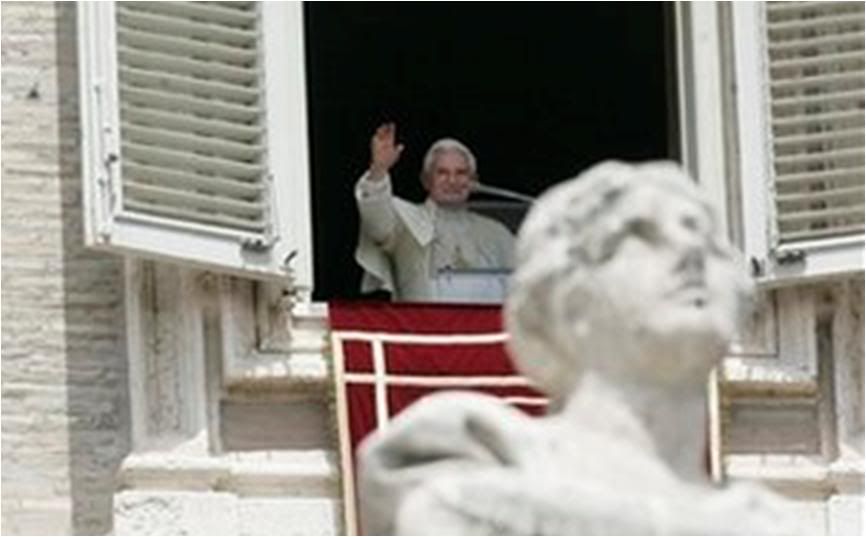
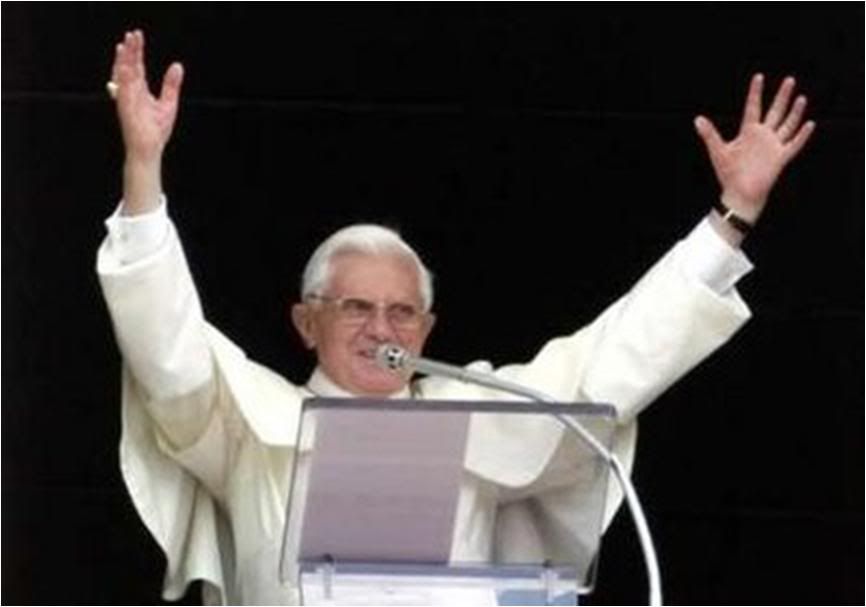 Here is how the Holy Father synthesized his mini-homily today in English:
Here is how the Holy Father synthesized his mini-homily today in English:
In today’s Gospel Jesus invites his disciples to remain in his love by their love for one another.
These words of the Risen Lord have a special resonance for me as I reflect on my recent pilgrimage to the Holy Land.
I ask all of you to join me in praying that the Christians of the Middle East will be strengthened in their witness to Christ’s victory and to the reconciling power of his love.
Through the prayers of Mary, Queen of Peace, may the Christians of the Holy Land, in cooperation with their Jewish and Muslim neighbours, and all people of good will, work in harmony to build a future of justice and peace in those lands.
Upon them, and upon all of you, I invoke an abundance of Easter joy in Christ our Saviour.
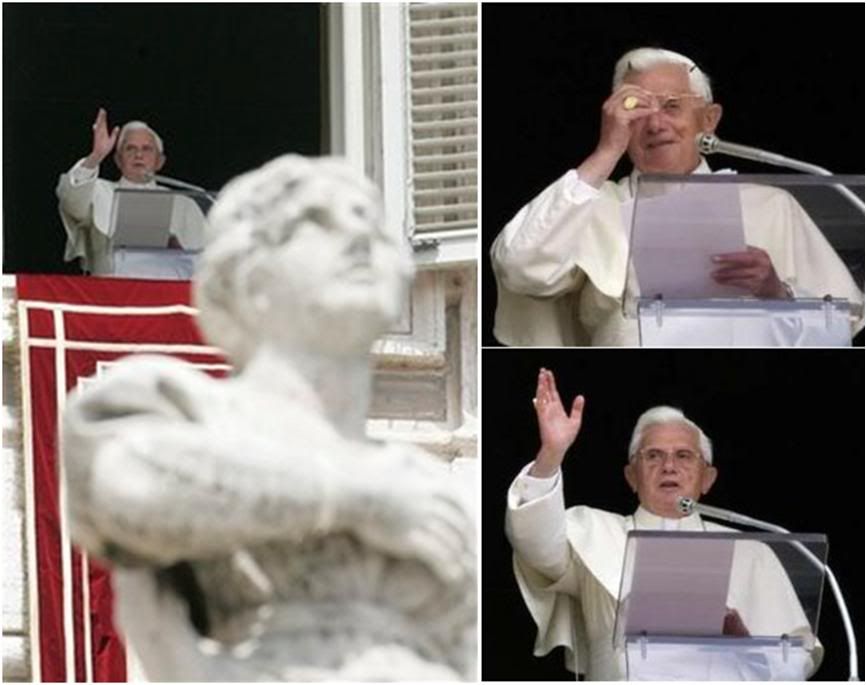 Here is the full text of the Holy Father's words today:
Here is the full text of the Holy Father's words today:
Dear brothers and sisters:
I came back the other day from the Holy Land. I intend to speak to you about this pilgrimage with greater amplitude on Wednesday at the General Audience.
Today I wish to thank the Lord above all, who has allowed me to complete this very important apostolic journey.
And I thank all who offered their collaboration: the Latin Patriarch and the pastors of the Church in Jordan, in Israel and the Palestinian Territories; the Franciscan Custodians of the Holy Land; the civilian authorities of Jordan, Israel and the Palestinian Territories; the organizers and the forces of law and order.
I thank the priests, the religious and the faithful who welcomed me with such affection and all those who accompanied and supported me with prayers. I thank everyone from the bottom of my heart.
This pilgrimage to the holy sites of Christianity was also a pastoral visit to the faithful who live there, a service for the unity of Christians, for dialog with Jews and Muslims, and for building the peace.
The Holy Land, symbol of God's love for his people and for all of mankind, is also a symbol of the freedom and peace which God wants for all his children.
But in fact, the history of yesterday and today show that that land has become the symbol of the contrary - namely, of divisions and interminable conflicts among brothers.
How is this possible? It is right that this question should address our hearts, although we know that a mysterious plan by God involves that land where, as St. John writes, he "sent his Son as expiation for our sins" (1 Jn 4,10).
The Holy Land has been called a 'fifth Gospel', because there, we can see, and even touch, the reality of the history that God has realized with men: starting with the places in Abraham's life up to the places of the life of Jesus, from the incarnation to the empty tomb, the sign of his Resurrection.
Yes, God came to this land - he lived like us in this world. But we can say something else: the Holy Land, by its very history, can be considered a microcosm which sums up in itself God's difficult journey with man. A journey which, with sin, also implies the Cross.
But with the abundance of divine love, it also always implies the joy of the Holy Spirit in the Resurrection that took place, a journey through the valleys of our suffering toward the Kingdom of God. A kingdom which is not of this world but lives in this world and should penetrate it with its power of justice and peace.
[The statements in green were impromptu additions to the text by the Holy Father, according to the account of Vatican Radio.]
The history of salvation starts with the election of a man, Abraham, and of a people, Israel, but its intention is universality - the salvation of all peoples. The history of salvation has always been marked by this interweaving of specificity and universality.
We see this nexus in the first reading today: St. Peter, seeing in Cornelius's house the faith of the pagans and their desire for God, says: "In truth, I see that God shows no partiality. Rather, in every nation whoever fears him and acts uprightly is acceptable to him" (Acts 10,34-34).
To fear God and to practise justice, to learn this and thus to open the world to the Kingdom of God - this is the most profound purpose of every inter-religious dialog.
I cannot conclude this Marian prayer without turning my thoughts to Sri Lanka, to express assurances of my affection for and spiritual closeness to the civilians in the combat zones in the northern part of the country.
They include thousands of children, women and aged people whom the war has deprived of years of life and hope.
In this respect, I wish once more to address an urgent invitation to the belligerents to facilitate the evacuation [of these civilians], and to this end, I add my voice to the appeal made by the Security Council of the United Nations a few days ago which asked for guarantees for their safety and security.
Moreover, I ask humanitarian institutions, including Catholic ones, to spare no attempt to meet the urgent food and medical needs of the refugees.
I entrust that beloved country to the maternal protection of the Blessed Virgin of Madhu, who is loved and venerated by all Sri Lankans, and I raise my prayers to the Lord so that he may hasten the day of reconciliation and peace.
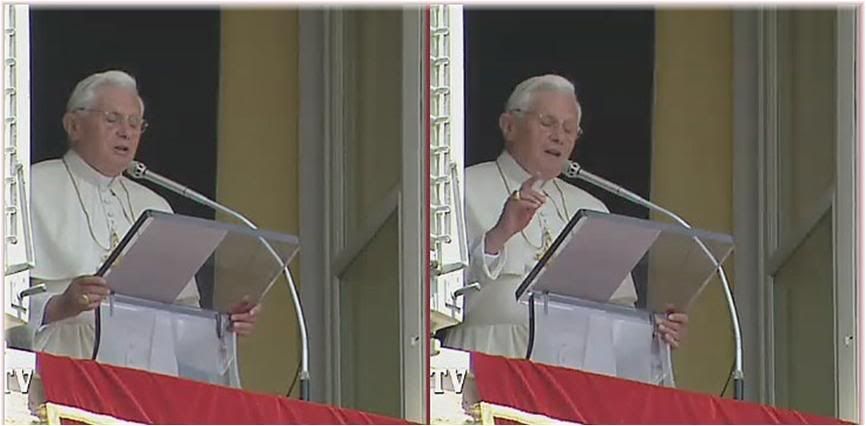
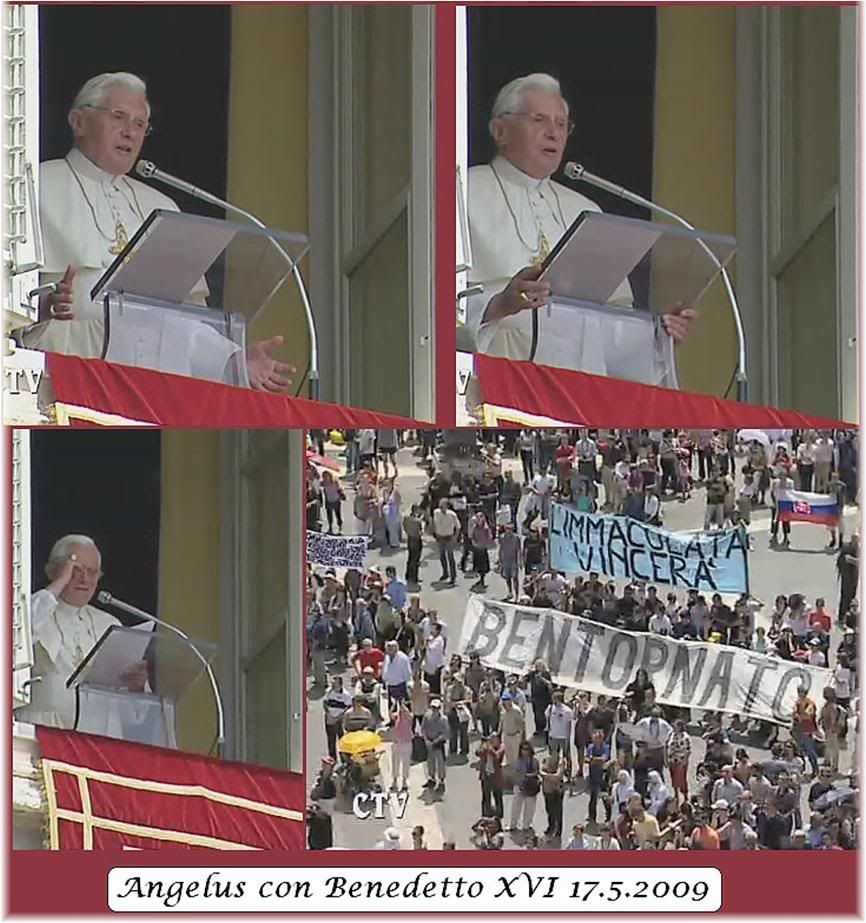 Thanks to Caterina for the montage - Papino is so beautiful!
Thanks to Caterina for the montage - Papino is so beautiful!
[Modificato da TERESA BENEDETTA 19/05/2009 09:12] |
| |
 17/05/2009 23:10 17/05/2009 23:10 |
|
| | | OFFLINE | | Post: 17.463
Post: 181 | Registrato il: 28/08/2005
Registrato il: 20/01/2009 | Administratore | Utente Junior | |
|
 The new element in the NOBAMA banner shows the protest mortarboard worn by some ND graduates today, which features a Cross and baby feet.
Sad to say, but the secular media persist in reporting on the Church as if they were reporting on political parties or big business. All the liberals who slam the Church at every opportunity for being too centralized expected it this time to step into and micromanage a local issue from a distance! Just imagine the howls about 'Vatican interference!' in the unlikely event that the Vatican had intervened in any way.
The new element in the NOBAMA banner shows the protest mortarboard worn by some ND graduates today, which features a Cross and baby feet.
Sad to say, but the secular media persist in reporting on the Church as if they were reporting on political parties or big business. All the liberals who slam the Church at every opportunity for being too centralized expected it this time to step into and micromanage a local issue from a distance! Just imagine the howls about 'Vatican interference!' in the unlikely event that the Vatican had intervened in any way.
The MSM persist in the mistaken idea of the Vatican as headquarters for a multinational corporation called the Roman Catholic Church, when in fact, there are only a couple of thousand bureaucrats working there compared to the almost 1.2 billion Catholics around the globe!
None of them bother to understand the concept of the universal Church and the local churches, each of which has almost full autonomy in their own affairs, except in matters of doctrine, of universal Church practices that the Pope decrees, and the naming of bishops. [Journalists are expected to master, in theory at least, the fields which they report on, whether it is nuclear physics and nanotechnology, or basketball. How come religion reporters are not held to the same standard?]
There's a reason why each local church is named after the territory it covers and is not called Church of Rome, which is limited alone to the diocese that the Pope heads.
The Pope is not sidestepping the Notre Dame issue at all - it simply is not his call to make, and the locals have done their part.
The local bishop, Bishop D'Arcy, stated his position early on, and so did the United States Conference of Catholic Bishops, as well as 70 bishops in their individual capacity (about one third of all US bishops).
And all of these bishops point to a policy declaration by the USSCB in 1994 - that no local Church or bishop or lay advocate questioned at all, at the time - according to which no Catholic institution should honor any person or entity who is associated with policies and practices that directly violate the teachings of the Catholic Church.
It is as simple as that. To which the primary cause of all this tension - Notre Dame's current president, Fr. John Jenkins - responded with the unbelievably lame rationalization that the policy referred only to Catholics who violate Catholic teaching, not to non-Catholics, and Obama being non-Catholic, it does not apply to him!
Even a seven-year-old who had just discovered the use of reason would be embarrassed at Jenkins's disingenuousness!
Jenkins is, of course, ignoring the more fundamental issue of the duty of a registered Catholic institution in upholding Catholic doctrine. And that was most clearly spelled out by John Paul II in Ex Corde Ecclesiae, his 1990 Apostolic Constitution on Catholic Universities - which is not just a local decree as the 1994 USSCB policy is, but part of the universal Magisterium of the Church - which Notre Dame and other U.S. liberal institutions calling themselves 'Catholic' and registered as such, have been merrily ignoring all along.
![[SM=g8113]](https://im0.freeforumzone.it/up/0/13/1492792.gif) ![[SM=g8113]](https://im0.freeforumzone.it/up/0/13/1492792.gif) ![[SM=g8113]](https://im0.freeforumzone.it/up/0/13/1492792.gif) ![[SM=g8113]](https://im0.freeforumzone.it/up/0/13/1492792.gif) ![[SM=g8113]](https://im0.freeforumzone.it/up/0/13/1492792.gif) ![[SM=g8113]](https://im0.freeforumzone.it/up/0/13/1492792.gif) ![[SM=g8113]](https://im0.freeforumzone.it/up/0/13/1492792.gif) ![[SM=g8113]](https://im0.freeforumzone.it/up/0/13/1492792.gif) ![[SM=g8113]](https://im0.freeforumzone.it/up/0/13/1492792.gif) ![[SM=g8113]](https://im0.freeforumzone.it/up/0/13/1492792.gif) ![[SM=g8113]](https://im0.freeforumzone.it/up/0/13/1492792.gif) ![[SM=g8113]](https://im0.freeforumzone.it/up/0/13/1492792.gif) ![[SM=g8113]](https://im0.freeforumzone.it/up/0/13/1492792.gif) ![[SM=g8113]](https://im0.freeforumzone.it/up/0/13/1492792.gif) ![[SM=g8113]](https://im0.freeforumzone.it/up/0/13/1492792.gif) Church Politics:
Church Politics:
Why the Pope is sidestepping Notre Dame
By AMY SULLIVAN

Sun May 17
At the rate things are going, Pope Benedict XVI may find his next trip to the U.S. dogged by airplanes overhead trailing banners with images of aborted fetuses. O.K., that's a bit of hyperbole.
But while several prominent conservative Catholics in this country are apoplectic over the University of Notre Dame's invitation of the pro-choice Barack Obama to give the school's commencement address on May 17, the Vatican has stayed completely silent on the matter.
The two very different reactions to the question of whether a Catholic institution should honor anyone who disagrees with the Church's teaching on abortion are just the latest examples of the strikingly divergent responses American Catholic leaders and the Vatican have had to the Obama Administration.
Three-quarters of Catholics either approve of or offer no opinion on Notre Dame's decision to invite Obama, and the same percentage of U.S. bishops have opted to stay out of the fight.
However, for a small but vocal group of conservative Catholics, the episode has become an opportunity to draw lines between those who are genuinely Catholic and those whom they accuse of being Catholic in name only - even the head of the country's premier Catholic university.
"It is clear that Notre Dame didn't understand what it means to be Catholic when they issued this invitation," said Cardinal Francis George, president of the U.S. Conference of Catholic Bishops (USCCB).
The conservative Cardinal Newman Society organized a petition calling for Notre Dame president Father John Jenkins to dis-invite the President. Professional protesters such as Alan Keyes and Randall Terry have descended on the South Bend campus, pushing blood-covered baby dolls in Spongebob strollers and getting themselves arrested.
And Cardinal James Francis Stafford, one of the highest-ranking Americans at the Vatican, has declared Obama an unfit honoree because his statements on abortion reflect "an agenda and vision that are aggressive, disruptive and apocalyptic." [Excuse me, Cardinal Stafford made these remarks about Obama when he was still a candidate, long before Notre Dame made its infamous decision. Sullivan probably meant Archbishop Raymond Burke, who is head of the Apostolic Segnatura (the Vatican 'Supreme Court' for canon law), and has declared himself against teh Notre Dame action and for the USCCB position. I really protest journalists who presume to inform the public and don't bother to inform themselves correctly first.]
This isn't the first time Obama has received decidedly mixed reviews from Catholics. A few months ago, he issued an Executive Order lifting restrictions on federal funding for stem-cell research. The move was immediately denounced by the USCCB as "morally wrong," and even moderate Catholics complained about the way the decision was handled.
But the Vatican had a different reaction. L'Osservatore Romano, the official newspaper published under the authority of the Vatican's Secretariat of State, ran an article in late April essentially urging the bishops to chill out.
[It is very unfortunate that the OR has chosen to take sides instead of reporting objectively, the inference being that since it is 'the Pope's newspaper', the Pope must necessarily approve of everything printed in it. A fallacious conclusion, since the Vatican also respects freedom of the press, even in its own newspaper. To conclude that the Pope necessarily agrees with all the incipient Obama-mania among OR editors and writers means he also agreed with, say, Mons. Fisichella's ill-advised, hasty and imcomprehensible editorial commentary on the Brazilian girl who aborted, or with Lucetta Scaraffia's questioning of the concept of brain death adapted by the Church as the criteria for determining when a person is dead, or an enthusiastic review of Beatles music, to name just a few examples!
On the other hand, given the now open liberal bias of the OR editors, one would have to conclude that it was the Pope who asked the OR to give full play to President Bush's relations with the Vatican after his visit to the US last year.]
Under the headline "The 100 Days that Did Not Shake the World," the paper gave Obama a tentative thumbs-up for his policy changes concerning the economy and international relations.
"On ethical questions, too - which from the time of the electoral campaign have been the subject of strong worries by the Catholic bishops - Obama does not seem to have confirmed the radical innovations that he had discussed," said the article, which noted that Obama's stem-cell guidelines were "less permissive" than expected.
So is this a schism? Have Cardinal George and the other conservative U.S. bishops gone rogue? Or is the Pope letting them play bad cop while he makes nice with the popular new American President? [All unnecessary questions if Ms. Sullivan had just bothered to read up on the organizational and administrative structure of the Church from the time of St. Peter!]
The Vatican has a tradition of remaining largely above the fray while allowing - sometimes even encouraging - local bishops to be more aggressive in challenging political leaders. [It is not just a tradition - it is inherent in the structure of the Church!]
In Italy, for instance, both Pope John Paul II and Pope Benedict XVI have given communion to pro-choice politicians while letting Italian church leaders take the role of lecturing those Catholics on their dissent from church teaching.
And this is particularly true of the Vatican's relationships with foreign leaders, whom the Pope views as fellow heads of state. Some observers have interpreted Cardinal George's Oval Office meeting with Obama on St. Patrick's Day to talk about abortion as an emissary visit, speculating that the cardinal was sent by Benedict.
But if the Vatican merely wanted to avoid public unpleasantness in its dealing with the U.S. President, it could do that by essentially ignoring the new Administration. Instead, it has displayed a surprising optimism, bordering on enthusiasm, for Obama's presidency.
Breaking with protocol that usually prevents the Pope from addressing heads of state before they take office, Benedict sent a congratulatory telegram to Obama the day after the November election.
[No such breaking of protocol! It was precisely in keeping with protocol, and as matter of elementary courtesy, that the Pope as head of state sends a congratulatory message to the newly elected President.]
The Pope noted the "historic" nature of the victory [How could he not, for the first black President of the USA???? All the more reason why a congratulatory message was indicated!] and said he would pray that God would "sustain you and the beloved American people in your efforts to build a world of peace, solidarity and justice." [He is the Pope - of course, he prays for everything good for anyone he addresses! You'd think he never told George W. Bush he prays for him and the American people.]The two spoke directly less than a week later [Obama called the Pope to thank him for his congratulatory message], and the Pope sent yet another telegram on Jan. 20 when Obama was inaugurated (Of course, by protocol! The liberals are so anxious to show these grace notes as their 'proof' that Obama must be on the side of the angels if even the Pope is gracious to him - the Pope is gracious to everyone, by his nature and by his function!]
When reporters at Catholic News Service, the official news agency of the USCCB, talked to Vatican officials just prior to the Inauguration, they found the Holy See mostly focused on economic issues and Middle East politics.
"Asked about pro-life issues, on which Obama and the Catholic Church have clear differences, Vatican officials took a wait-and-see attitude," the news agency reported.
The starkly different responses of some U.S. bishops and the Vatican could just be a matter of pure politics. As Obama's European tour last month showed, the Pope would hardly be the only head of state eager to start off on the right footing with the new Administration.
In addition, Obama is broadly popular among American Catholics, 67% of whom gave him a positive approval rating in a recent Pew poll. At a time when the U.S. Catholic Church is losing members - a separate Pew study found that for every American who joins the Catholic Church, four others leave - Benedict may not be willing to test the costs of opposing Obama. {Does Sullivan really think that the Pope thinks he may lose more Catholics in the US if he opposes Obama on legitimate grounds???? What a mistaken opinion she has of the role of the Pope! And obviously, she ha never heard or read of Cardinal Ratzinger's ideas about a 'creative minority' that stands for the Church's age-old teachings ratrer than an inflated membership consisting mostly of dissenters and weak-kneed believers!]
Of course, the Notre Dame kerfuffle has political roots as well. The protesters aren't accusing the university of violating church teaching but rather of violating a 2004 policy that the USCCB approved in the midst of vigorous debate over John Kerry's presidential candidacy.
The statement, titled "Catholics in Political Life," was speedily drafted in response to questions about whether Kerry should be denied communion because of his pro-choice positions. Catholic institutions, it read, "should not honor those who act in defiance of our fundamental moral principles."
When the bishops approved the statement, it wasn't clear whether it would carry much weight after the election, much less whether it applied to the case of a non-Catholic like Obama.
Among those most eager to drive a wedge between the President and rank-and-file Catholics are Catholic Republicans, who worry about losing more voters to the Democratic Party.
Newt Gingrich wasn't yet a Catholic when the 2004 statement was debated and approved. But the new convert was the first to speak out against Notre Dame's commencement speaker. On March 24, the Republican former House Speaker weighed in on his Twitter account, which appears to have limits on capital letters: "It is sad to see notre dame invite president obama to give the commencement address since his policies are so anti catholic values."
There's nothing like the zeal of a convert, but Gingrich may find it's awkward to try to be more Catholic than the Pope.
[He's not trying to be more Catholic than the Pope. He's expressing himself on a local issue that does not require the Pope to step in at all because the locals are doing pretty well, thank you,
They may not have prevented Notre Dame from conferring an honorary degree on Obama [who was one of eight persons granted honorary degrees at the same ceremony, it turns out!], but the episode sure caused many US Catholics to declare themselves clearly. As one Notre Dame student protester put it, "It has made me a better Catholic, because now I know what it means to stand up for what the Church teaches".]
 It turns out Damian Thompson blogged on the Sullivan piece for Time:
Time Magazine on the Pope,
It turns out Damian Thompson blogged on the Sullivan piece for Time:
Time Magazine on the Pope,
Obama and Notre Dame:
A shabby piece of journalism

May 17, 2009
This is how Time Magazine chooses to begin its coverage of Barack Obama's humiliating PR problem at Notre Dame. "At the rate things are going, Pope Benedict XVI may find his next trip to the U.S. dogged by airplanes overhead trailing banners with images of aborted fetuses."
This grotesque purple flourish serves as the introduction to a thoroughly biased article by Amy Sullivan which dismisses the unprecedented Catholic opposition to Obama's commencement address as the work of, wouldn't you just know it, "a small but vocal group of conservative Catholics".
"Small but vocal group" is the the media's code for a protest that offends them. You rarely see small but vocal groups of liberals described thus.
Then there's this gem: "Among those most eager to drive a wedge between the President and rank-and-file Catholics are Catholic Republicans."
Amy Sullivan isn't above a bit of wedge-driving herself, by the way. She implies that the Vatican is chilled about Notre Dame's decision, unlike Cardinals George, DiNardo, Stafford and Archbishop Dolan. No, it isn't.
The Pope, for perfectly good reasons, is leaving the protests to the local Church rather than turn Fr John Jenkins's disastrous invitation into an international diplomatic incident.
But does anyone seriously doubt what Joseph Ratzinger thinks about the decision by a Catholic university to honour as a moral exemplar a man who has campaigned for partial-birth abortion?
Take a look at the screen grab above from Time's website. Note the ad for a charity at the top: "... because the only thing more vulnerable than a newborn, is a newborn born early". I can think of babies who are even more vulnerable in Obama's America, can't you?
As for Time Magazine, Creative Minority Report has worked out the score: "But you have to understand the reason. There are people who are saying mean things about Obama. Time Magazine has to protect their cover boy. Especially since Time is probably hoping for a bailout".
[Nahhh.. that's a secondary motivation. Time and its editors and writers are liberal, which means they oppose many of the core teachings of Catholicism - that's the root of the bigotry, and the absolute unwillingness to learn about the structure of the Church, at the very least (which can be summed in a single senetence), before pontificating on it. Then, there's the Obama-mania factor.]
[Modificato da TERESA BENEDETTA 06/07/2009 06:07] |
| |
 18/05/2009 13:01 18/05/2009 13:01 |
|
| | | OFFLINE | | Post: 17.464
Post: 182 | Registrato il: 28/08/2005
Registrato il: 20/01/2009 | Administratore | Utente Junior | |
|


May 18
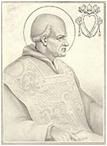 St. John I (Pope 523-526)
St. John I (Pope 523-526)
Martyr
No OR today.
THE POPE'S DAY
The Holy Father met today with
- Cardinal Leonardo Sandri, Prefect of the Congregation for the Oriental Churches
- Bishops of Peru (Group 3) on ad limina visit. Address in Spanish.
- Mons. Jan Romeo Pawlowski, Apostolic Nuncio in the Repbulic of Congo and Gabon, with his family
and in the afternoon with
- H.E. Lech Kaczynski, President of Poland, with his wife and delegation.
BENEDICT XVI TO THE BISHOPS OF PERU:
RELAUNCH THE MISSIONARY SPIRIT

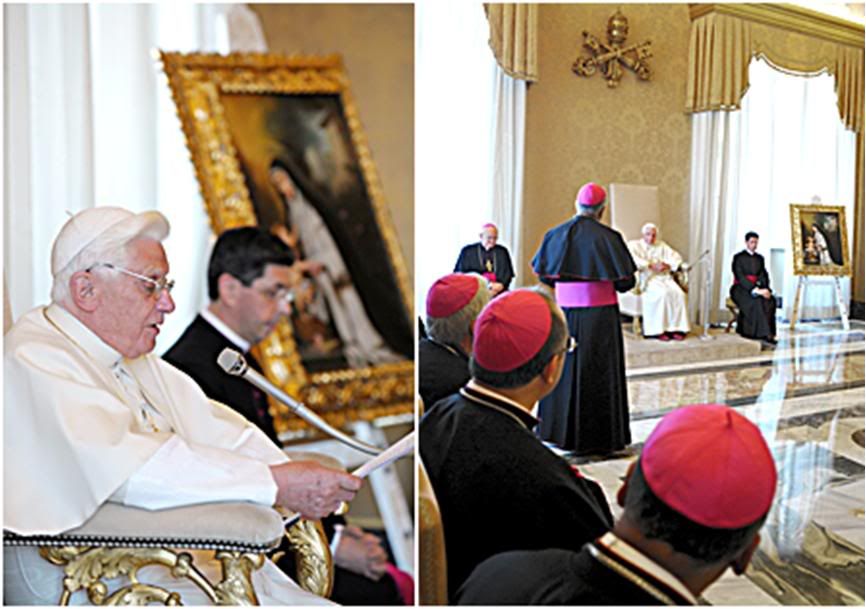
VATICAN CITY, 18 MAY 2009 (VIS) - Today AT the Vatican, the Holy Father received prelates from the Peruvian Episcopal Conference, who have recently completed their "ad limina" visit.
The Holy Father began his remarks to them by speaking of the unity of the Church which, he said, "is never definitively achieved and must be constantly constructed and perfected, without surrendering to difficulties, be they objective or subjective, and with the aim of showing the true face of the Catholic Church, one and unique".
After highlighting how "the authentic unity of the Church is always an inexhaustible source of the spirit of evangelisation", the Pope expressed his joy at the fact that the prelates had adapted their pastoral programmes to accommodate "the missionary impulse promoted by the Fifth General Conference of the Episcopate of Latin America and the Caribbean, celebrated in Aparecida, and especially the 'Continental mission', with a view to ensuring that each member of the faithful aspires to sanctity through a personal rapport with the Lord Jesus, loving Him with perseverance and conforming their own lives to evangelical criteria so as to create ecclesial communities of intense Christian life".
"This means relaunching the missionary spirit, not out of fear of the future, but because the Church is a dynamic presence, and the true disciple of Jesus Christ takes pleasure in freely transmitting His divine Word to others and sharing with them the love that flowed from His open side on the cross".
Benedict XVI encouraged the prelates "to unite all the living energies of your dioceses that they may start out again from Christ irradiating the light of His face, especially to brothers and sisters who, perhaps because they feel unappreciated or not sufficiently recognised in their spiritual and material needs, seek answers to their anxieties in other religious experiences".
"Assiduous pastoral visits to ecclesial communities (including the most remote and humble), prolonged prayer, careful preparation of preaching, paternal concern for priests, families, young people, catechists and other pastoral care workers, are the best ways to instil in everyone an ardent desire to be messengers of the Good News of salvation, and will at the same time open the hearts of those around you, especially the sick and those most in need".
The Holy Father highlighted "the beneficial presence of selfless men and women of consecrated life" in Peru. In this context he called on the bishops to continue their "fraternal accompaniment and encouragement" of such people so that, "living the evangelical counsels according to their own charism, they may continue their robust witness of love for God, unshakeable adherence to Church Magisterium and willing collaboration with diocesan pastoral programmes".
The Pope concluded by mentioning those Peruvians "without work or adequate educational and healthcare provisions, and those who live in the suburbs of the great cities or in isolated areas. My thoughts also go to those who have fallen pray to drug addiction and violence. We cannot ignore these our weakest brothers and sisters, beloved unto God, ... Christ's charity urges us on".
[Modificato da TERESA BENEDETTA 19/05/2009 06:41] |
| |
 19/05/2009 04:48 19/05/2009 04:48 |
|
| | | OFFLINE | | Post: 17.466
Post: 184 | Registrato il: 28/08/2005
Registrato il: 20/01/2009 | Administratore | Utente Junior | |
|

 The Pope, Arabic Islam and the West
The Pope, Arabic Islam and the West
by Samir Khalil Samir, SJ
 The Islamic media’s criticism of Benedict XVI is nothing in the face of the wealth of his proposal.
The Islamic media’s criticism of Benedict XVI is nothing in the face of the wealth of his proposal.
Dialogue with science is essential for the Arab world, at a standstill for centuries;
it is crucial that the West does not close itself into relativistic ideologies that despise faith.
Beirut, May 14 (AsiaNews) – Benedict XVI’s pilgrimage to the Holy Land has been shrouded in controversies that kick up clouds of dust without ever catching a glimpse of the truth.
The fact is that the Pope’s message to the people of that land, Christian and Muslim, Israeli and Palestinian, is vital for peace in the region.
True brotherhood between
Christians and Muslims in Jordan
In particular in Jordan, Benedict XVI laid the basis for collaboration between Muslims and Christians, East and West.
There is a notable difference between what the Muslim world wrote about in the press and the attitude in Jordan. Many Arab papers dragged in the so called “Regensburg offence”, the demand for an apology for the offensive against Islam etc.
Instead the atmosphere that we witnessed in Jordan was serene, welcoming and of shared trust.
The Pope sincerely praised efforts being made by the Jordanian monarchy, the king, Prince Al-Ghazi, Queen Rania, who accompanied him to the University of Madaba, to bless the foundation stone.
The same Catholic University of Madaba – that had been the dream of the emeritus Latin Patriarch Michel Sabbah – is a sign of the cordiality shared by Christians and Muslims in Jordan: a Catholic University that has the support, even economic, of the Hashemite Royal Family.
This is the fruit of a politics that goes beyond mere tolerance of Christianity. My experience in Jordan – I was there on 3 occasions last year and twice met with Prince Hassan – was one of an atmosphere of serenity and friendship, one I have, so far, failed to find in another Islamic nation.
This allowed small gestures of hospitality and honour towards their guest the Pope. For example, for his visit to the “al-Hussein bin-Talal” Mosque in Amman, they allowed the Pope to wear his shoes, placing a long carpet on the ground. Prince al-Ghazi also wore his shoes.
The atmosphere in Jordan inspired a message along the lines that "we are all friends, Bedouins, Christians, Muslims". Jordanians insist on the fact that Jesus and Mary are part of the historic tradition of the nation, because Jesus was baptized along the Jordan River in what is now Jordanian territory, they believe that this land is sanctified by his presence and that of other prophets.
Religion and science:
Sharpening “critical skills”
But the Pope's discourse at the University of Madaba was really a key point of this pilgrimage. The Pope underlined many things, but above all, the importance of a serious academic education for Christians and Muslims to favour personal development and the values that promote peace and progress in the region.
The Pope stressed that a university education is the key to personal development; that peace is built on knowledge and study rather than ignorance; that an integral, economic and social, political and democratic development, is born of study and knowledge.
He developed this argument saying that the aim of a university is to transmit “love for truth” and promote students “adherence to values”, strengthening their “personal freedom”.
It’s very important that in a Muslim (and Christian) world, often theocratic, the Pope, before speaking of religion, speaks of culture and science. And the aim of science is to love and discover truth. He insists that this intellectual formation “will sharpen critical skills, dispel ignorance and prejudice, and assist in breaking the spell cast by ideologies old and new”.
“Critical skills” are important in the Arab world: without criticism faith can become fanaticism, superstition or even manipulation. The Pope touched on a point that is vital for the growth of the region: the absence of the critical eye results in people following one or other political leader, without ever questioning the need for democracy, freedom, human rights, coexistence.
People religiously follow, without ever questioning, the principles of their own faith, holding onto traditions, fearful of drowning in freedom of conscience. This is true of all religions not just Islam.
[Not for many Western Christians who trumpet the primacy of personal judgment - they call it 'conscience' - above everything else!]
The Pope rightly points out that ignorance or prejudice threatens peace and dialogue.
And when he speaks of the “enchantment of ideologies” he alludes to the easy way people let themselves become consumed by fanaticism and violence.
He says: “Religion, of course, like science and technology, philosophy and all expressions of our search for truth, can be corrupted. Religion is disfigured when pressed into the service of ignorance or prejudice, contempt, violence and abuse”.
Benedict XVI puts all of these realities into the same boat because everything can be disfigured – even science. For him, what is important is that religion is not abused or disfigured.
Need for an “ethical knowledge”
Speaking in the Amman Mosque he also said that secular society often claims that religion is the root cause of violence. In reality that only happens when religion is “disfigured”, but this is the risk of all wisdom.
This is why, quoting the Letter to the Philippians (4, 8), the Pope exhorts everyone to bear witness to “all that is true, honourable, just, pure, worthy of praise”. He advises Christians and Muslims not to fear science, but to open their minds to it, even at the risk of their own faith. This is a courageous message to give in an Arabic society that generally sees its religion as a refuge.
But he also has a message for the scientific world, which often risks transforming itself into an ideology devoid of ethics and openness to God. This element was also present in the Regensburg lecture.
The Pope underlines that even “sciences have their limitations. They cannot answer all the questions about man and his existence. Indeed the human person, his place and purpose in the universe, cannot be contained within the confines of science”.
This is why scientific knowledge must be guided by the light of “ethical wisdom... the wisdom that inspired the Hippocratic Oath, the 1948 Universal Declaration of Human Rights, the Geneva Convention and other laudable international codes of conduct”.
The examples cited by the Pope are all secular: the famous oath taken by all physicians up to our day, written by the pagan Hippocrates in the III century B.C; the UN Declaration of Human Rights adopted in 1948; the Geneva Convention giverning the conduct towards enemy soliders captured in war.
He does not cite rel;igious examples, thus showing that ethical wisdom can exist independently of religion. This is an important point to make in traditionally Muslim or Christian societies: it means dialogue is possible at 360 degrees with everyone, even non-believers.
But the Pope also warns non-believers that it is impossible to live without an ethical code, or a religious foundation, because otherwise, something essential would be missing from human formation.
Religion has suffocated the Arab
The function of the Catholic university is to form “qualified men and women, Christian and Muslim and of other religions”. It is not just a message for Islam.
This is a universal call to ensure that religion is not disfigured; to take up the challenge of science to have a critical eye; to search for a religious and secular ethical code to create a community of different religions and non believers.
And I believe this an important issue in our Arab world.
The values cited by the Pope are those that many are in search of today and that we Arabs experienced in the past (in the period between 1860 and 1950, with the so-called ‘Renaissance’, Nahda), or in the medieval era (IX and XI centuries): At that time we witnessed a vibrant relationship between religion and science, with reciprocal discussion, critical dialogue, and challenges.
But over the course of the past half century, this dialogue has disappeared, both at a scientific and religious level.
A few years ago Arab academics analysed the situation of scientific knowledge in the Arab world and wrote a catastrophic report. From primary school to university the question was posed: What is the Arab world’s contribution to universal knowledge? And we discovered that it was non-existent.
More recently on March 13th, the Algerian journalist Anwar Malek, speaking on Al-Jazeera TV, berated Arabs for having failed to contribute in any way to progress in the 20th century.
We really have regressed from the scientific point of view. And in the field of religion, we are being suffocated by a religion of form, increasingly controlled from the outside, very careful to keep up appearances (wearing the veil, a beard, a burqua, or Niqab) and attentive to the infinite rules that the imams decree by fatwa.
It has come to the point that thfatwa rules even the smallest aspects of private and social life: it is forbidden to wear lipstick; to pluck one’s eyebrows; to eat with a Christian; Shiites and Sunnis cannot live together…..Dozens and dozens of fatwa’s to regulate how we dress, how a husband and wife make love, how we spend money….
All of this is suffocating freedom and sccentuates the absence of science, democracy and freedom in Artab and Muslim societies.
Space for faith in Western society
The Pope’s simple, humble and courageous discourse, welcomes science, the critical spirit, freedom. He asks everyone to seek that which is good, noble and just.
At the same time, he proclaims the right to practice faith, urging the world of non-believers to find ethical standards they can live by,
In my opinion this message of Benedict XVI’s is a continuation of the Regensburg address on the relationship between faith and reason. There he developed the theme in a western, Christian context; here he developed it in a Muslim context.
[The mosque doscourse in Amman was clearly Regensburg-Part 2, and I was amazed, though not shocked, that none of the MSM covering the trip appeared to give it due importance. Not even John Allen, who usually prides himself in being the first to identify key critical points and trends for the Church.
Nor did anyone among the regular Vaticanistas bother to look up Prince Ghazi's full speech preceding the Pope's - the speech was posted right away that day on the site of A COMMON WORD, so I was able to post the text alongside that of the Pope's. But the only journalist I am aware of who checked out the Prince's admirable speech and posted it on his site promptly was Sandro Magister.
Of course, as a catch-as-catch-can 'irregular' chronicler of sorts of the Pope's activities, it has been a difficult challenge to properly appreciate each of the Pope's 33 discourses during the trip, because one has hardly started reading one when he is already delivering the next. I am limited to instant, on-the-spot 'editorial rebuttals' of glaring misinformation, and have no time to sit down and consider the papal texts more closely as they deserve to be.
But I look forward already to the Vatican edition of the papal texts from this Holy Land pilgrimage - perhaps nothing other than JESUS OF NAZARETH will rival it as a handbook of the Ratzinger-Benedictine Magisterium applicable not to Christians or believers alone, but to all men who intuitively recognize the 'natural law inscribed iN men's hearts'.]
To reduce this discourse to “something that is only for the Muslims” means being short-sighted. The Pope spoke to the entire world, even to the West, which is still drowning in relativism, in lack of faith and in contempt for religions.
In fact, in his discourse at the al-Hussein bin-Talal mosque the Pope warned against the danger of secularism: “We cannot fail to be concerned that today, with increasing insistency, some maintain that religion fails in its claim to be, by nature, a builder of unity and harmony, an expression of communion between persons and with God. Indeed some assert that religion is necessarily a cause of division in our world; and so they argue that the less attention given to religion in the public sphere the better”.
This is a clear criticism of the relativism and atheism of the West. But he also corrects the Muslims by noting that there is some truth to this secular position: “Certainly, the contradiction of tensions and divisions between the followers of different religious traditions, sadly, cannot be denied?”. But he also clarifies that it is not religion in itself that is the problem, rather “the manipulation of religion”.
“Muslims and Christians,- he concludes - precisely because of the burden of our common history so often marked by misunderstanding, must today strive to be known and recognized as worshippers of God faithful to prayer, eager to uphold and live by the Almighty’s decrees, merciful and compassionate, consistent in bearing witness to all that is true and good, and ever mindful of the common origin and dignity of all human persons, who remain at the apex of God’s creative design for the world and for history.”.
In this the affirmation that it is our right to worship God in society. Just as there is the right not to practice religion, there is also the right to practise religion.
[Modificato da TERESA BENEDETTA 19/05/2009 16:02] |
| |
 19/05/2009 05:28 19/05/2009 05:28 |
|
| | | OFFLINE | | Post: 17.467
Post: 184 | Registrato il: 28/08/2005
Registrato il: 20/01/2009 | Administratore | Utente Junior | |
|
 Your son is now a bishop,
Your son is now a bishop,
Pope tells parents from New Hampshire

Published: May 18, 2009
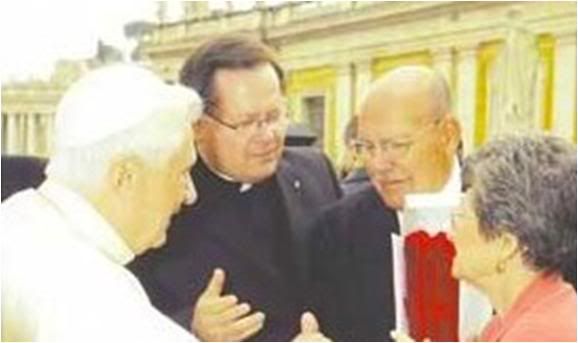
Attending a papal audience at the Vatican last month, New Hampshire couple Raymond and Brigitte Lacroix got a shock when Pope Benedict came up to them and told them he had chosen their eldest son as auxiliary bishop for Quebec, Canada.
The Manchester, N.H., couple were in Rome last month with their son, Fr Gerald Lacroix. They got front-row tickets for an audience with Pope Benedict XVI, and as the Pope moved through the crowd, he told them that he had chosen their eldest child for the position, WCAX reports.
"He had to say it twice because they didn't hear it the first time," the bishop-elect said, during a recent visit home to Manchester, the Union Leader says. "To hear this news, it was absolutely overwhelming."
"That left the three of us just hugging and being together," Fr Lacroix said.
The papal nuncio would later tell Lacroix he'd never heard of such a thing, a Pope telling a bishop's parents of their son's appointment.
"This is very, very special, and I'm very proud that the Pope did that," Lacroix said.
Lacroix expects many New Hampshire folks, including most of his large extended family, will attend his ordination at the Shrine of Sainte-Anne-de-Beaupre.
"There'll be some significant people there, very important to my heart," he said.
Superb! The story tells us a lot of how hands-on the Holy Father is in the matter of choosing and naming bishops.
If you're a Benaddict, you have to love the site (from which the above story came)
www.cathnewsusa.com/
that has this kind of advertising on it:
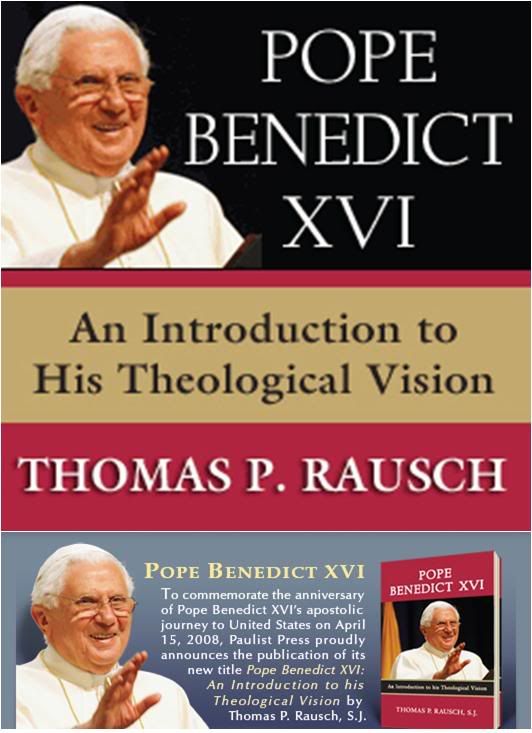 

Cathnews-USA is a project of the Paulist Press. [Modificato da TERESA BENEDETTA 19/05/2009 06:02] |
| |
 19/05/2009 06:56 19/05/2009 06:56 |
|
| | | OFFLINE | | Post: 17.468
Post: 186 | Registrato il: 28/08/2005
Registrato il: 20/01/2009 | Administratore | Utente Junior | |
|
|
| |
 19/05/2009 15:46 19/05/2009 15:46 |
|
| | | OFFLINE | | Post: 17.470
Post: 187 | Registrato il: 28/08/2005
Registrato il: 20/01/2009 | Administratore | Utente Junior | |
|

May 19
St. Theophilus of Corte (Corsica, 1676-1740)
Franciscan reformer
OR for 5/18-5/19:
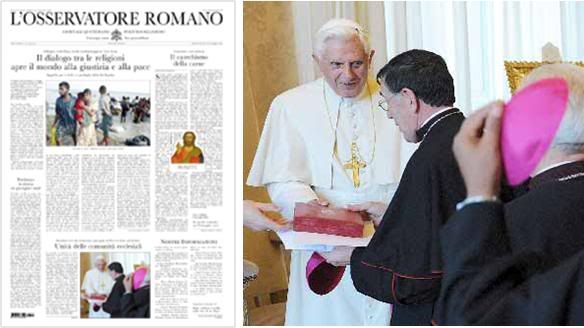
At Sunday's Regina caeli, The Pope speaks of his Holy Land pilgrimage:
'Dialog among religions opens the world to justice and peace'
Other Page 1 stories: the Pope addresses the Bishops of Peru on ad limina visit; the Sri Lankan government
proclaims victory in the 26-year civil war with the separatist Tamil Tigers; and an editorial commentary on
'The catechism of the flesh" about depiction of the human body in Christian art. The picture below is
from an inside page continuation of the Pope's Regina caeli text.
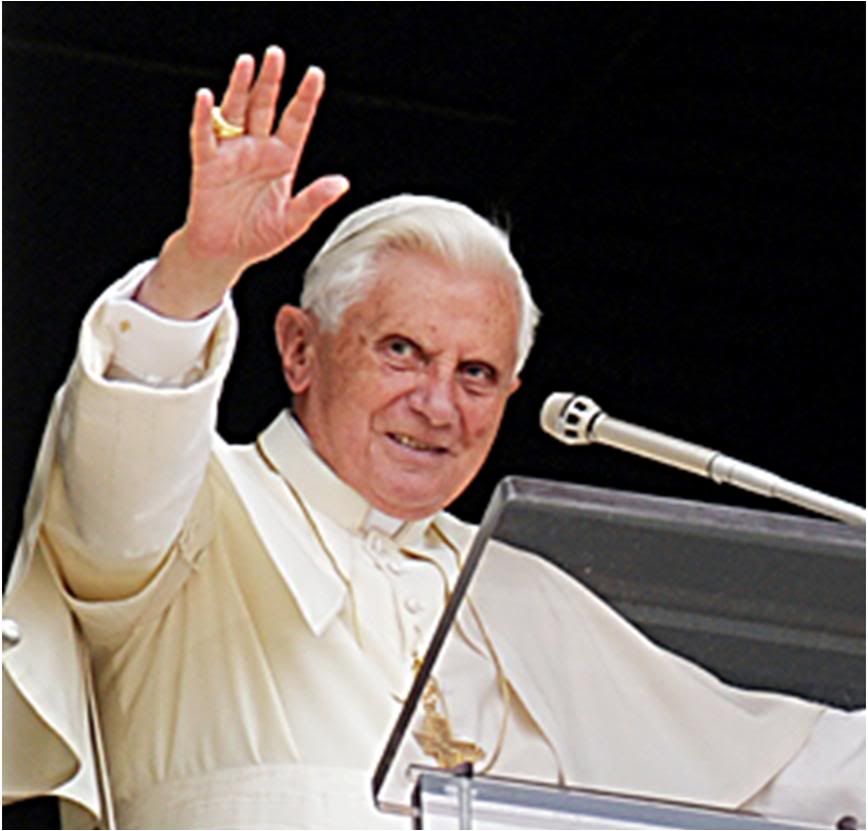
The Holy Father had no scheduled events today.
[Modificato da TERESA BENEDETTA 19/05/2009 15:50] |
| |
 19/05/2009 17:27 19/05/2009 17:27 |
|
| | | OFFLINE | | Post: 17.471
Post: 188 | Registrato il: 28/08/2005
Registrato il: 20/01/2009 | Administratore | Utente Junior | |
|
 Another belated report dating back to the Pope's Holy Land visit.
JEWISH-CATHOLIC DIALOGUE SUPPORTS
Another belated report dating back to the Pope's Holy Land visit.
JEWISH-CATHOLIC DIALOGUE SUPPORTS
POPE’S WITNESS IN ISRAEL

WASHINGTON, May 12 (USCCB) — Leading rabbis in interfaith relations applauded Pope Benedict XVI’s speech at the Yad Vashem Holocaust memorial in Jerusalem, which had earlier drawn criticism from several Israeli politicians and journalists.
“I really think it is purposeless to parse every word of the Pope, and to read into [his remarks] nuances that were not intended,” said Rabbi Gilbert Rosenthal, Executive Director of the National Council of Synagogues.
Rabbi Rosenthal made his comments at a press conference with Archbishop Timothy Dolan of New York following the spring meeting of the consultation of the U.S. Conference of Catholic Bishops’ (USCCB) with the National Council of Synagogues (NCS) of America, May 12, in Manhattan.
Rosenthal added that “the Holy Father went to Yad Vashem; he prayed at the Wall; he reiterated the fact that the Shoah must never be forgotten and that the names of the six million victims must never be erased from historic memory.”
Rabbi Alvin Berkun, President of the (Conservative) Rabbinical Assembly, stood with Rabbi Rosenthal, and said the Pope’s visits to both the memorial and the Western Wall, where he placed a prayer for peace among the religions and states of the region, build on the successes of his predecessor, Pope John Paul II, who visited the Holy Land in 2000.
Archbishop Dolan hosted the consultation at the New York chancery, and then welcomed participants to a prayer service and reception at his residence.
“This is your home,” Archbishop Dolan told the Jewish members of the consultation, who were joined by other New York rabbis.
During the prayer service, Rabbi David Sandmel of Catholic Theological Union, Chicago, prayed for Archbishop Dolan, saying, “May Archbishop Dolan ever be a source of inspiration and direction, a righteous teacher and a spiritual leader of men and women, young and old.”
The 20-year-old USCCB-NCS consultation considered the “proper use of wealth in a time of recession” for this meeting.
Jewish Theological Seminary professor Eliezer Diamond applied ethical principles found in the Talmud to the present economic crisis. We live in a culture that stresses “good living,” he said. “But we’ve neglected the idea, which is common to both our traditions, that wealthy people must also do good.”
Speaking for the Catholic tradition, Queens College professor Thomas Bird drew on the parables of Jesus and the social teachings of the popes to identify the two-sided nature of wealth.
“It can be a blessing and a curse,” Bird said. “On the one hand, the increase of wealth enables an improvement in the quality of life. On the other hand, wealth can be a curse if it closes one’s eyes to the needs of others.”
Cardinal William Keeler, Archbishop-emeritus of Baltimore, chaired the morning session, which included a discussion that showed significant overlap of Catholic and Jewish moral principles on the use of wealth.
Rabbi Berkum chaired the afternoon session where participants discussed a range of Catholic-Jewish issues. Members of the consultation underscored the importance of communication when a crisis arises between the two communities, such as last January’s uproar after the Vatican lifted the excommunications of four traditionalist bishops, one of whom has denied the fact of the Holocaust.
Catholic participants at the consultation also included Cardinal William Keeler, co-chair; Jesuit Father Drew Christiansen, editor, America Magazine; Father Lawrence Frizzell, Seton Hall University; Atonement Father James Loughran, Atonement Ecumenical Institute; Bishop Basil H. Losten, Former Bishop of Stamford for Ukrainians; Bishop Dennis Madden, Auxiliary Bishop of Baltimore; Monsignor Guy Massie, Diocese of Brooklyn, New York; Father James Massa, USCCB staff; Father Dennis McManus, Professor, Georgetown University; Father Robert Robbins, Archdiocese of New York; Bishop Gerald T. Walsh, Auxiliary Bishop of New York; and Bishop Patrick Zurek, Bishop of Amarillo, Texas.
Jewish participants in addition to Rabbi Rosenthal, Rabbi Berkum, and Rabbi Sandmel, included Rabbi Moses A. Birnbaum, Plainview Jewish Center, Plainview, New York; Rabbi Jerome Davidson, Hebrew Union College, New York; Rabbi Lewis Eron, Cherry Hill, New Jersey; Judith Hertz, NCS Board; Rabbi Ruth Langer, Boston College; Rabbi Joel Meyers, Executive Vice-President of the (Conservative) Rabbinical Assembly; Mark Pelavin, Associate Director of the Religious Action Center of Reform Judaism, New York; Rabbi Daniel F. Polish, Congregation Shir Chadash, LaGrangeville, New York; Carl Sheingold, Ph.D., Executive Vice President, Jewish Reconstructionist Federation; Jacob Stein, NCS advisor; Rabbi Jonathan Waxman, Congregation Beth-El in Massapequa, New York; and Rabbi Jeffrey Wohlberg, (Rabbi Emeritus) Adas Israel Congregation, Washington.
[Modificato da TERESA BENEDETTA 19/05/2009 17:27] |
| |
|
|
|
|